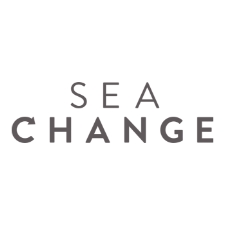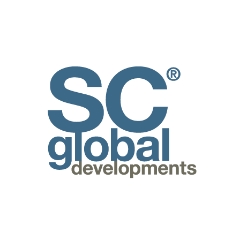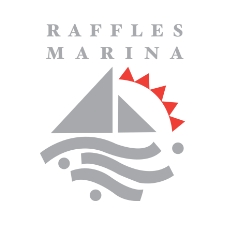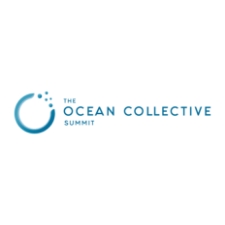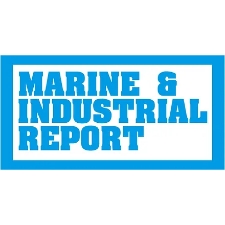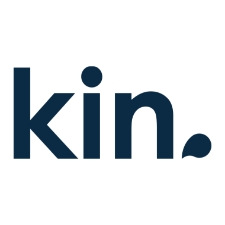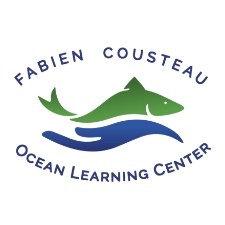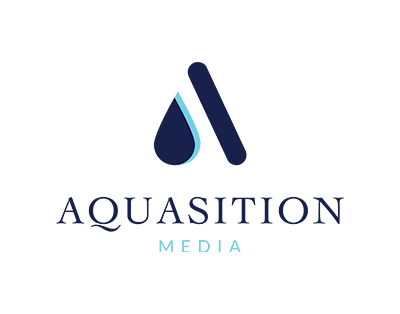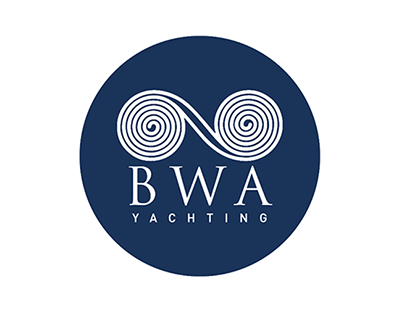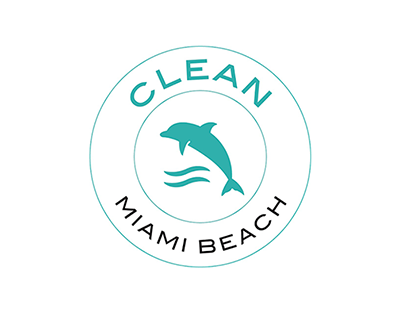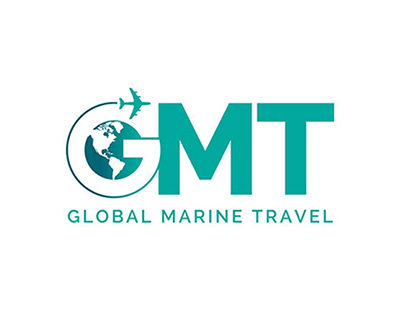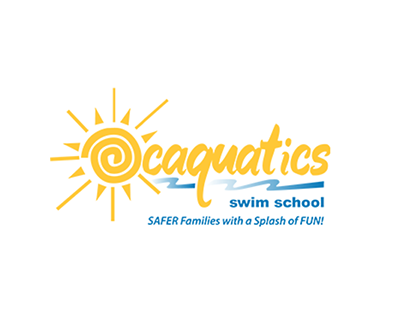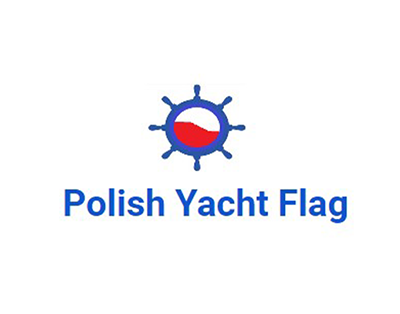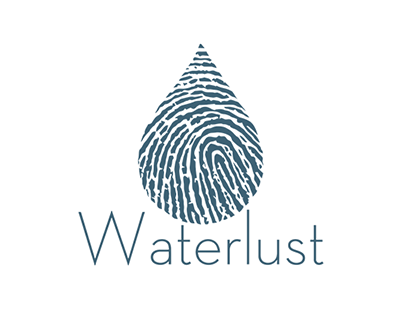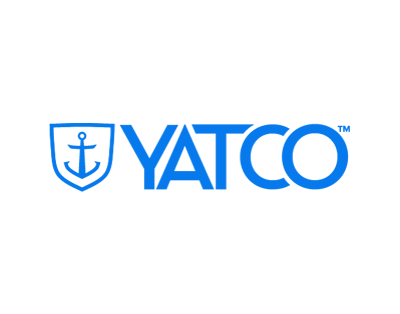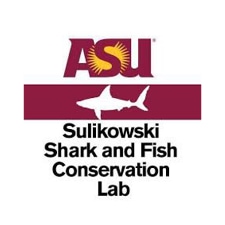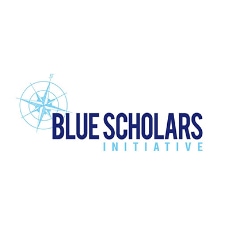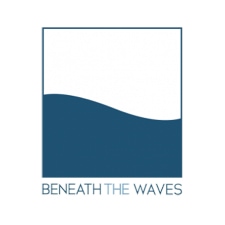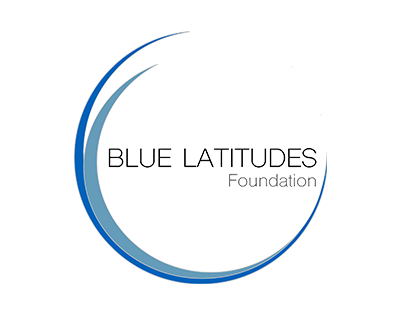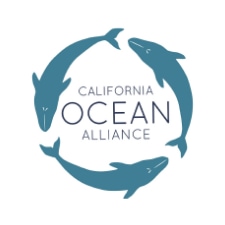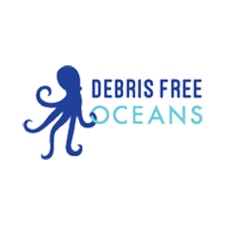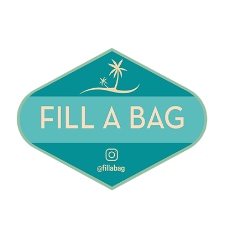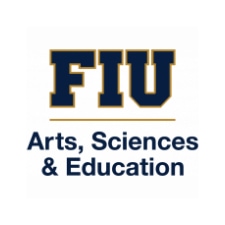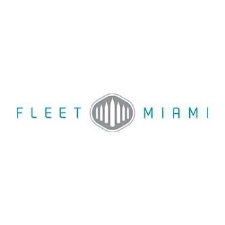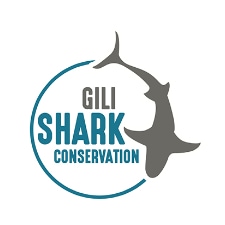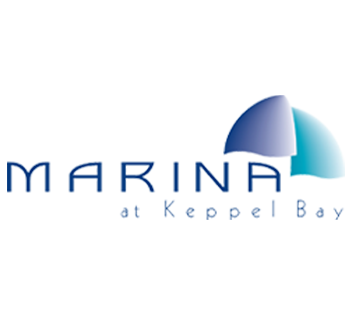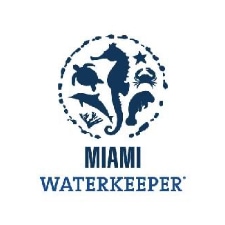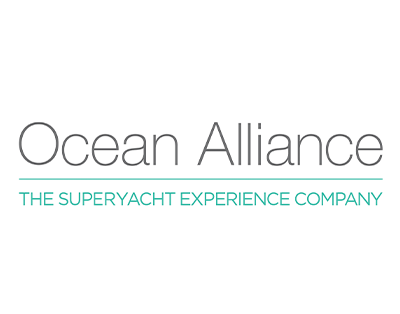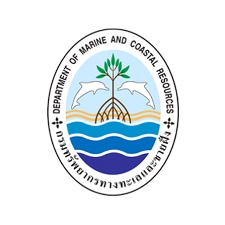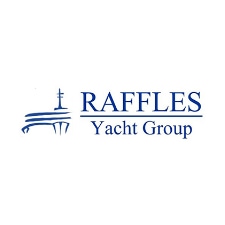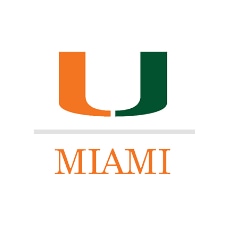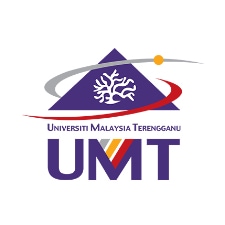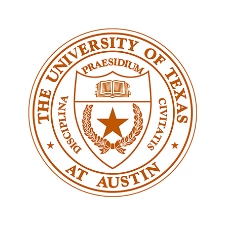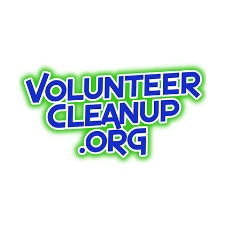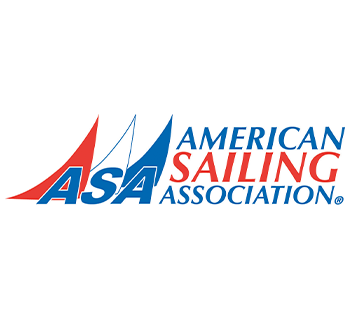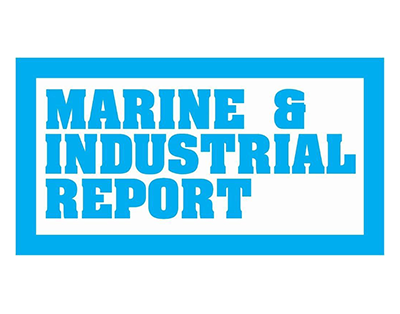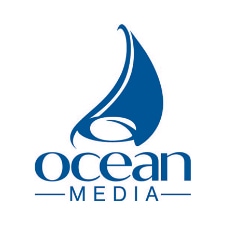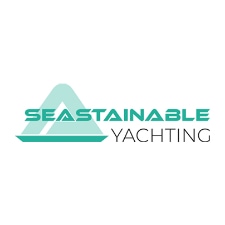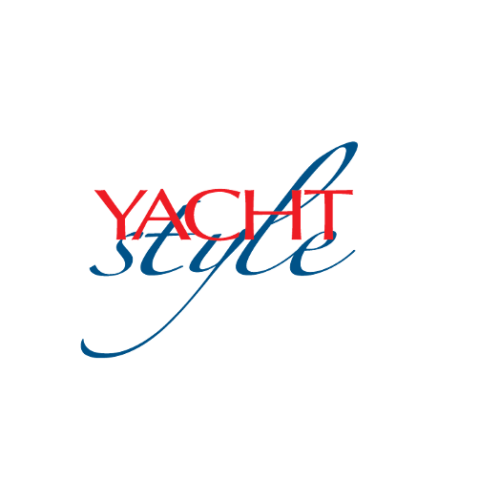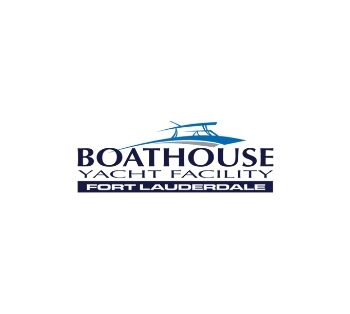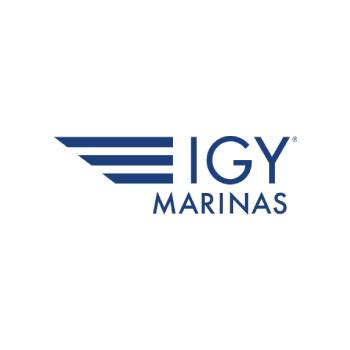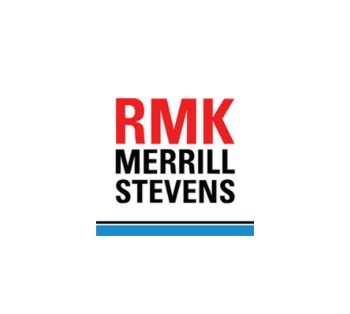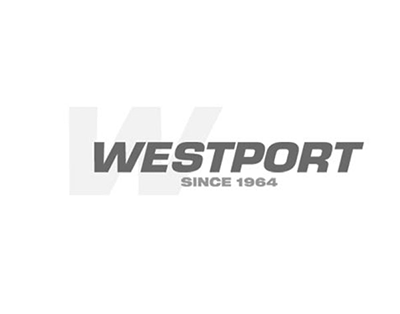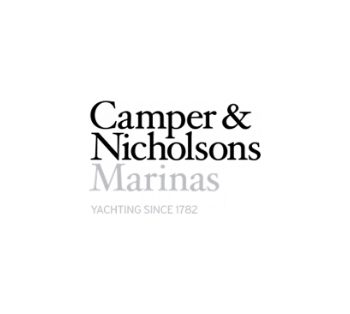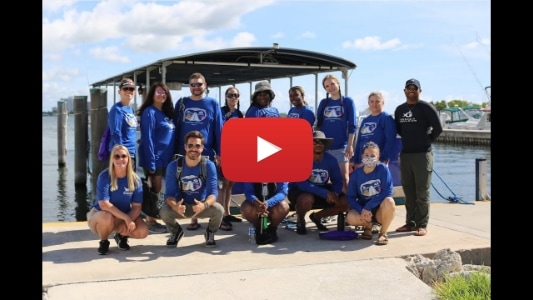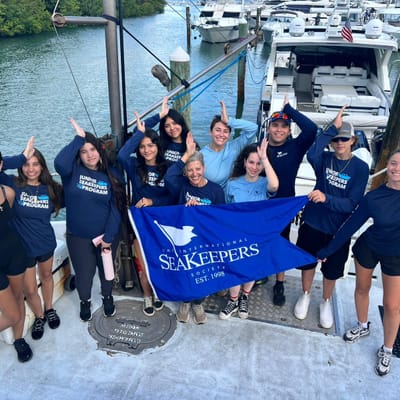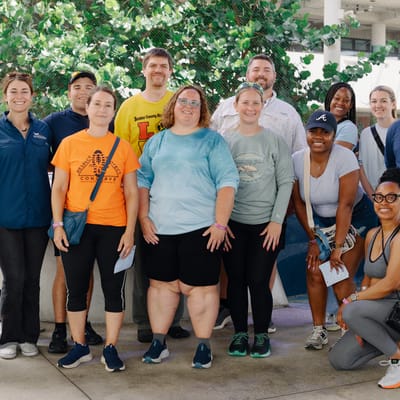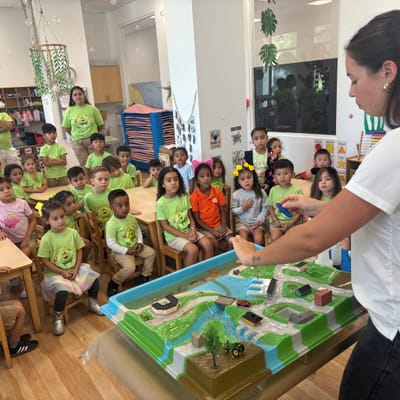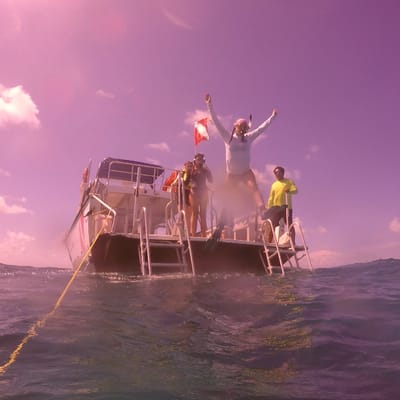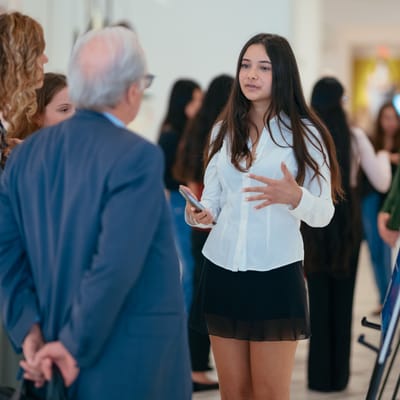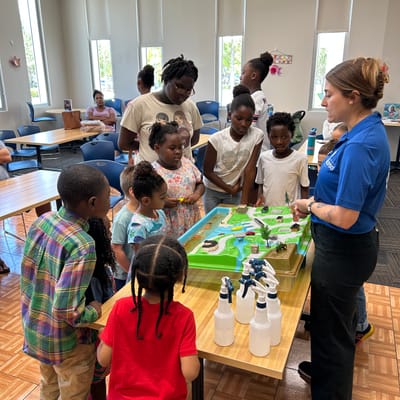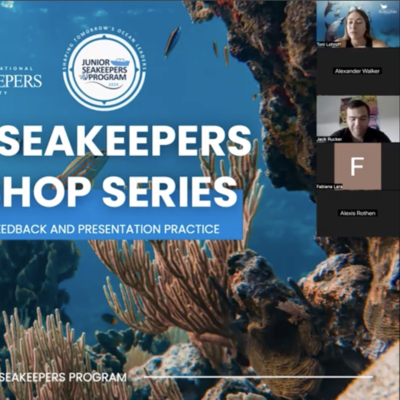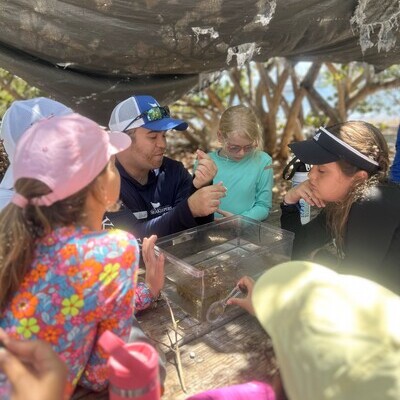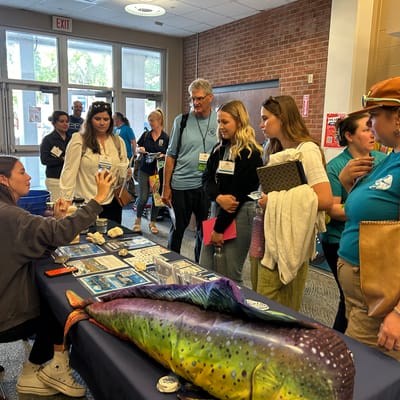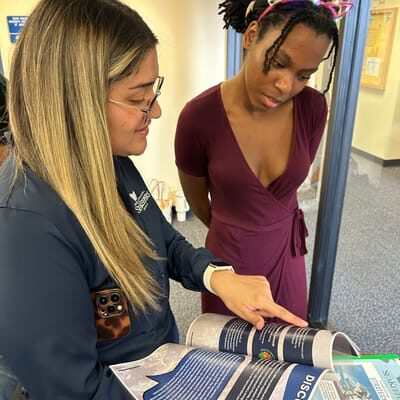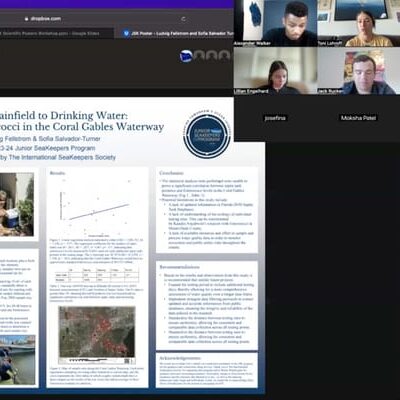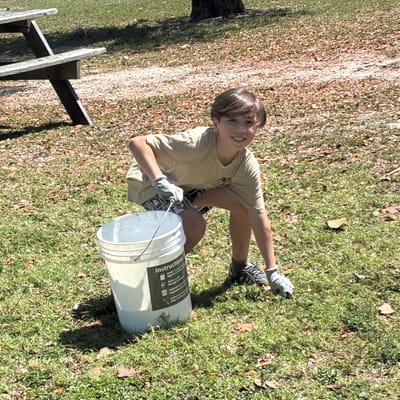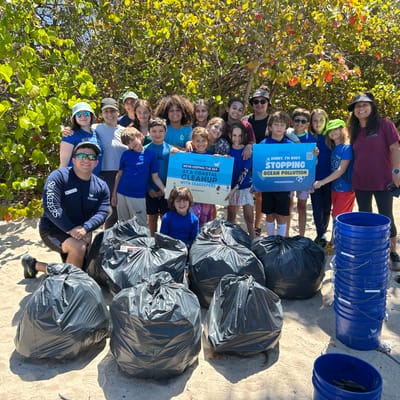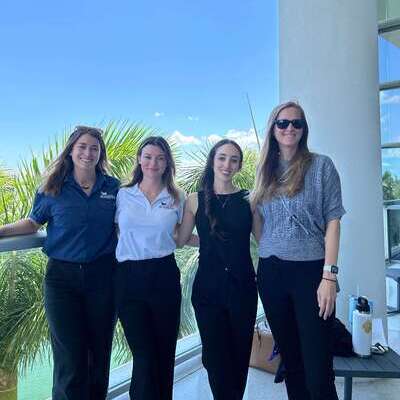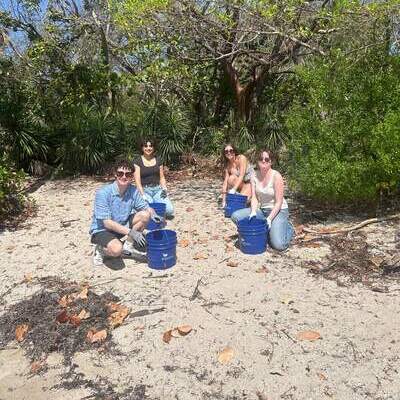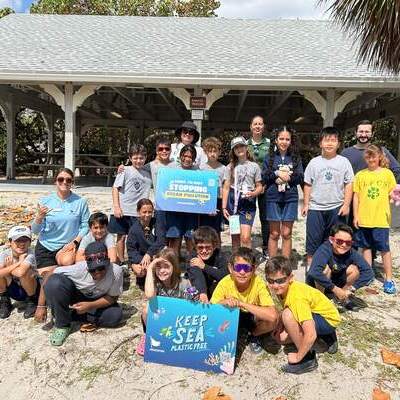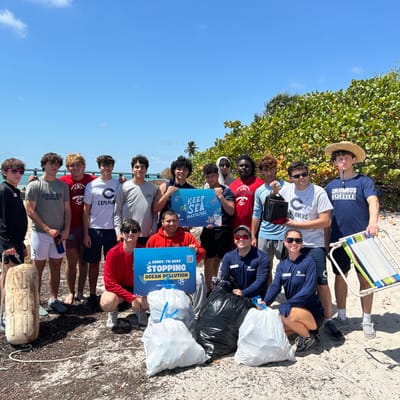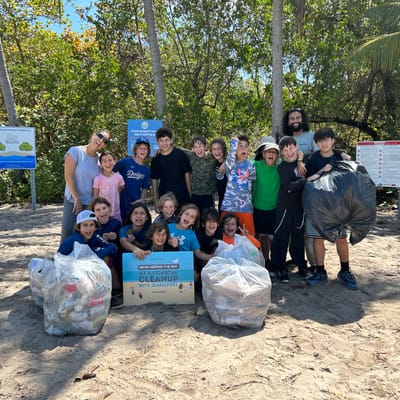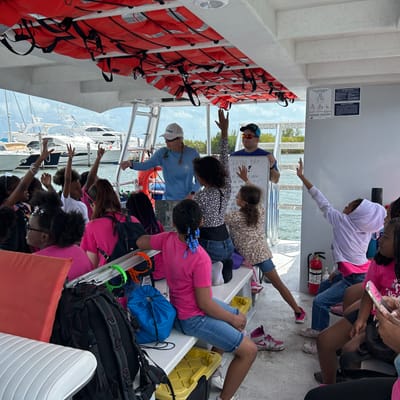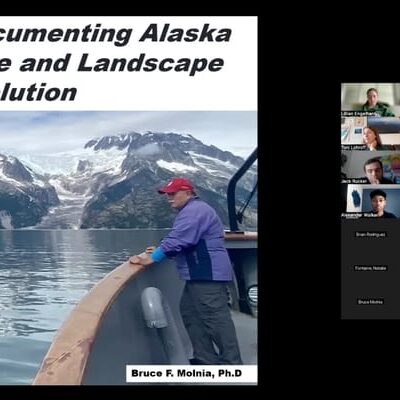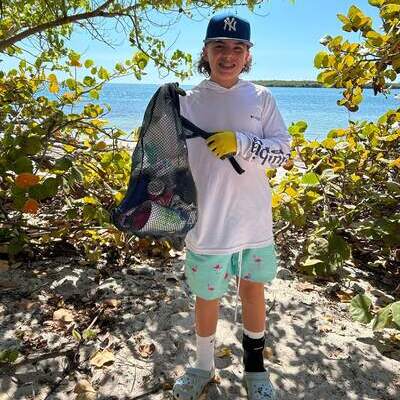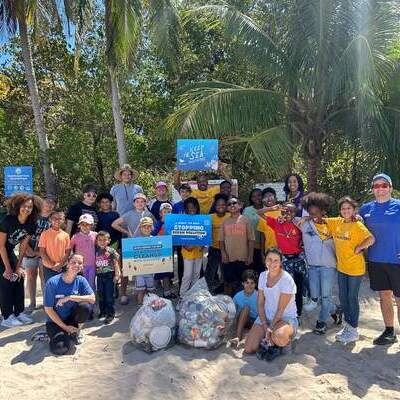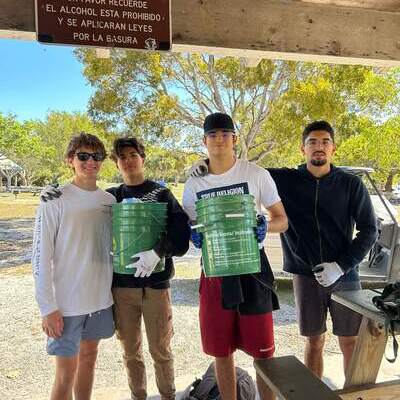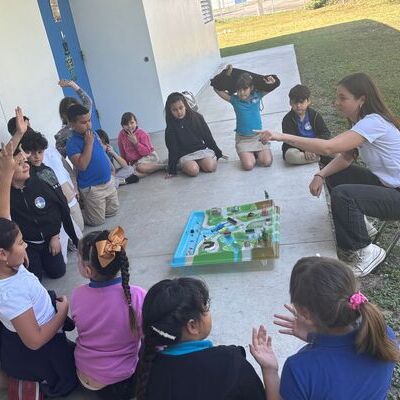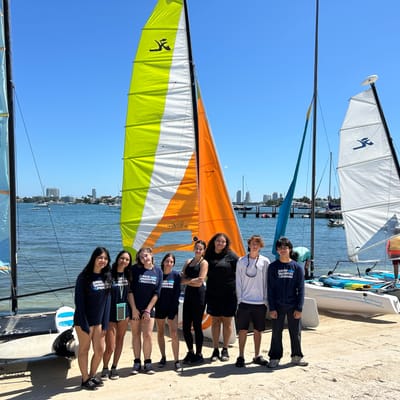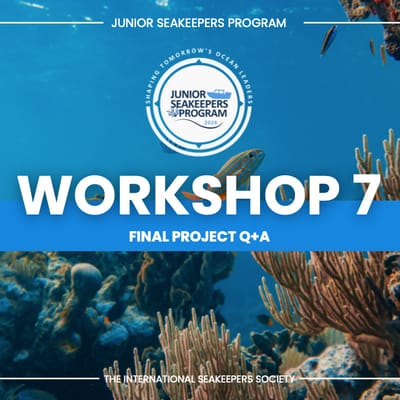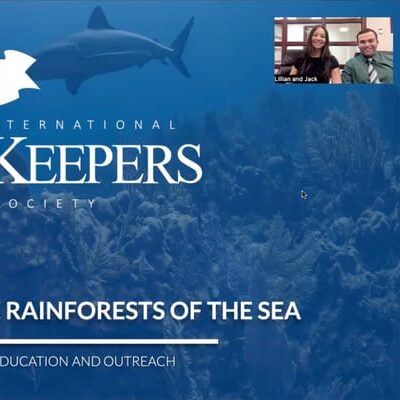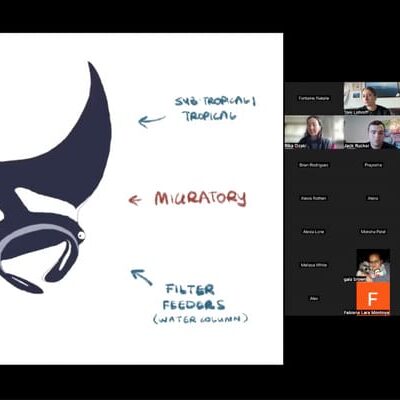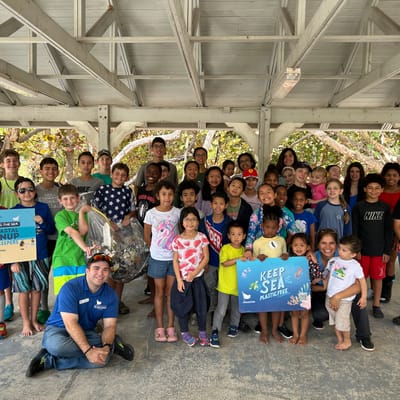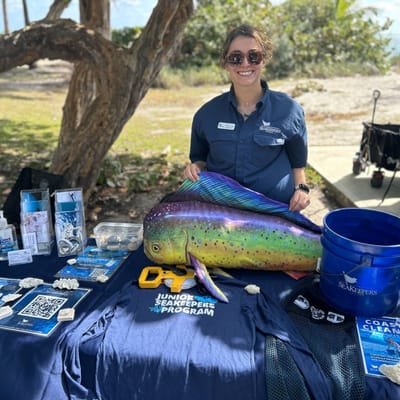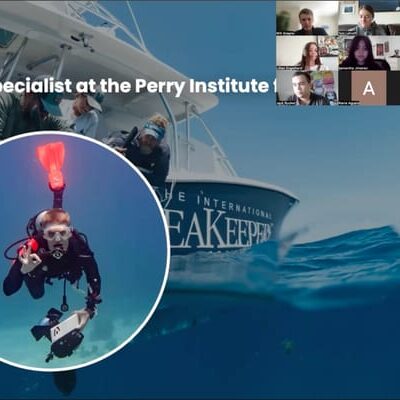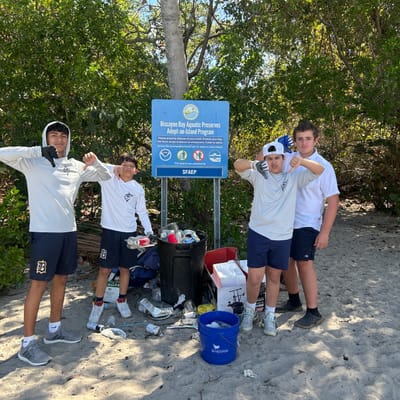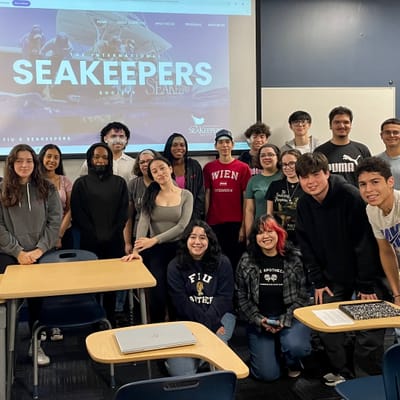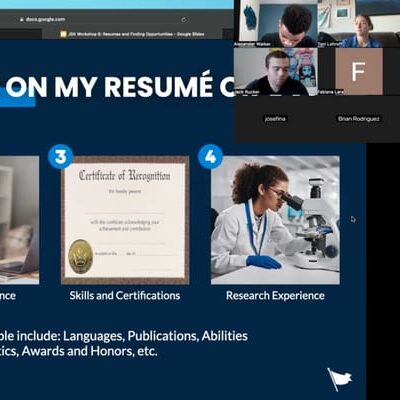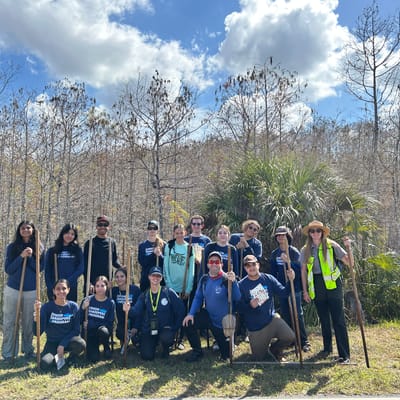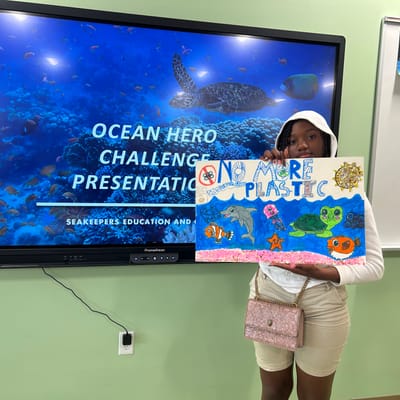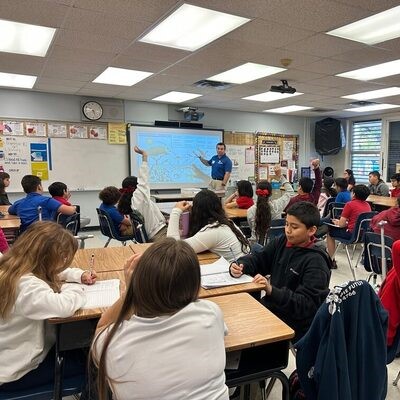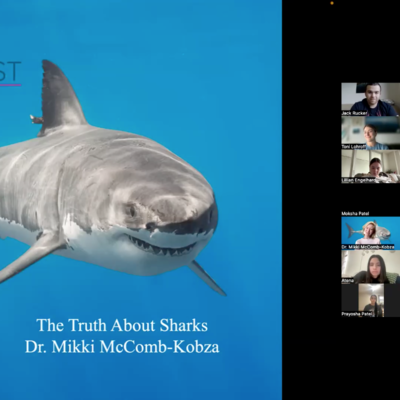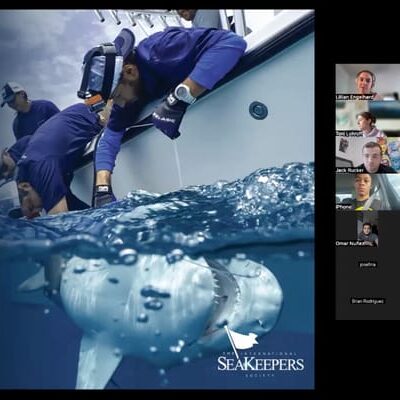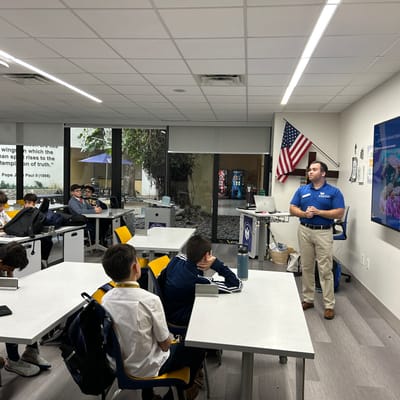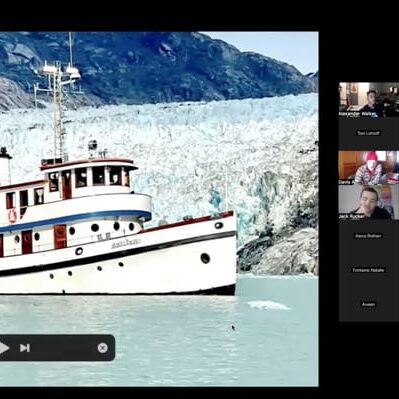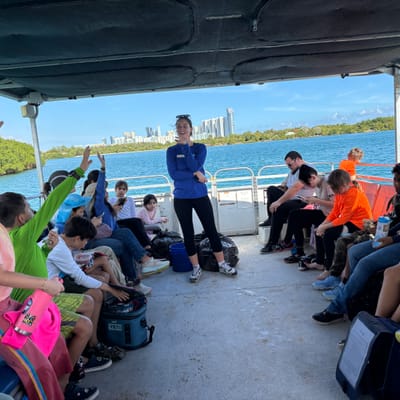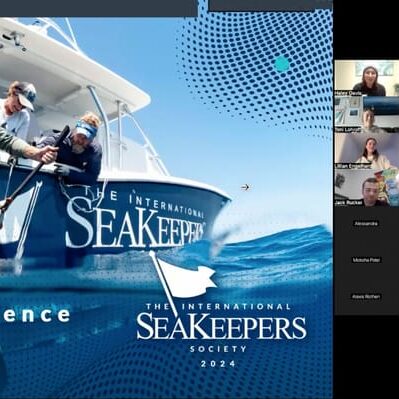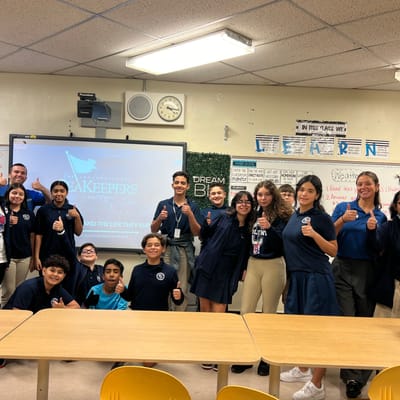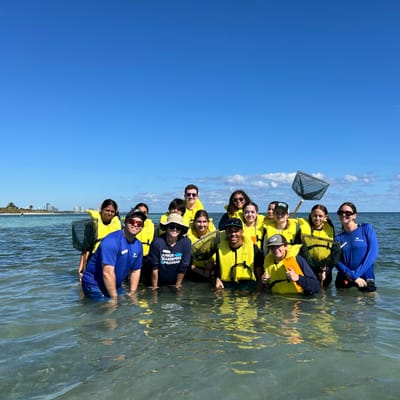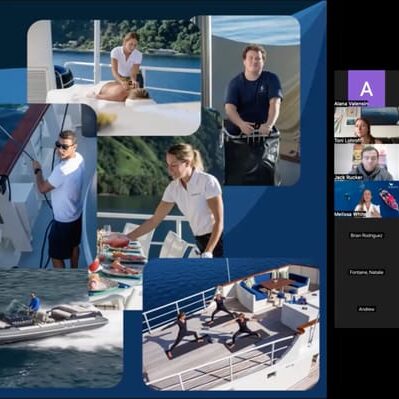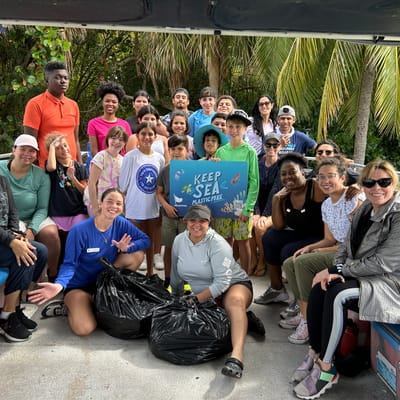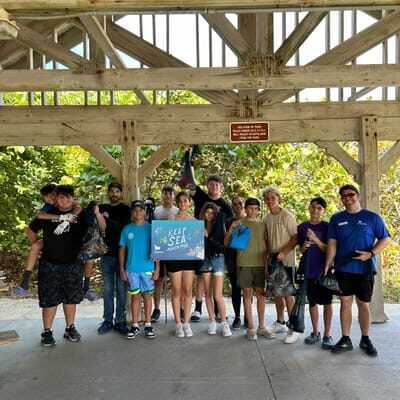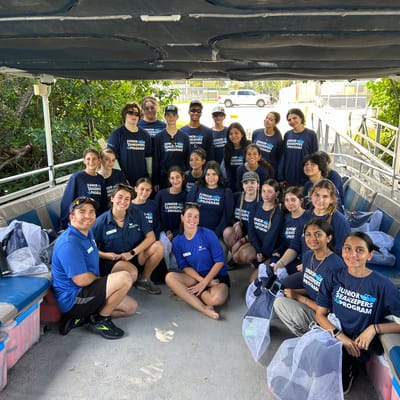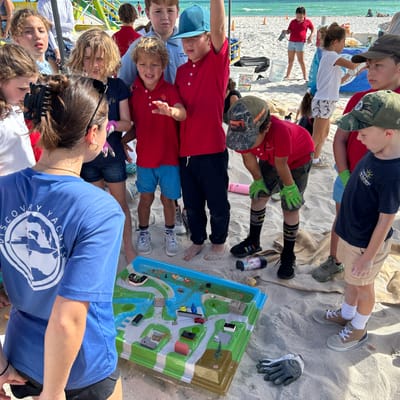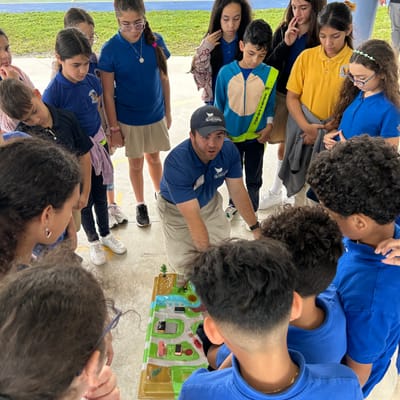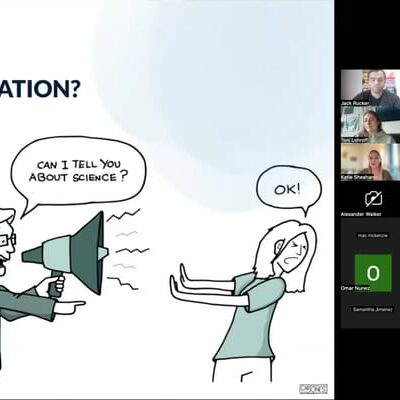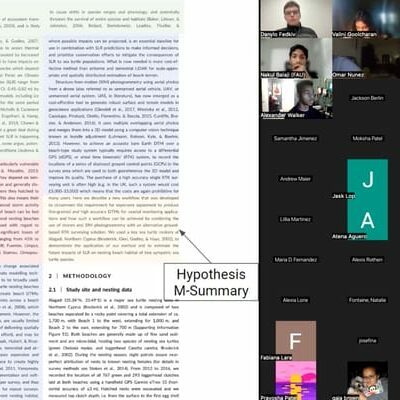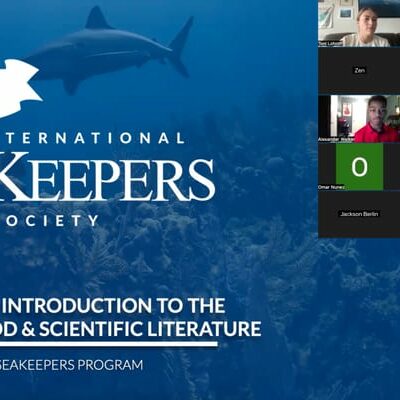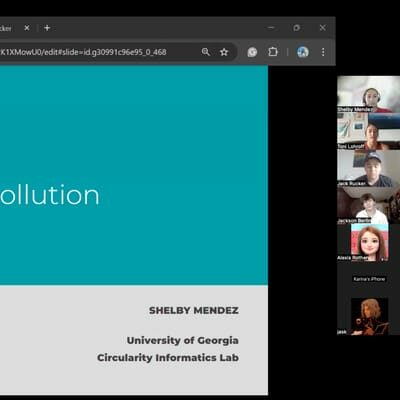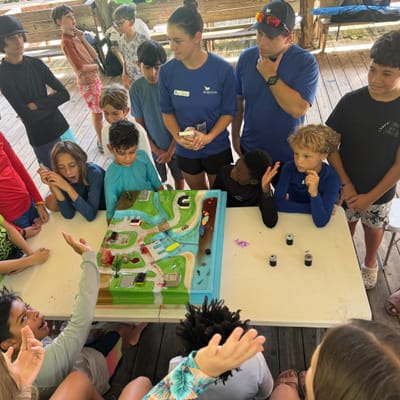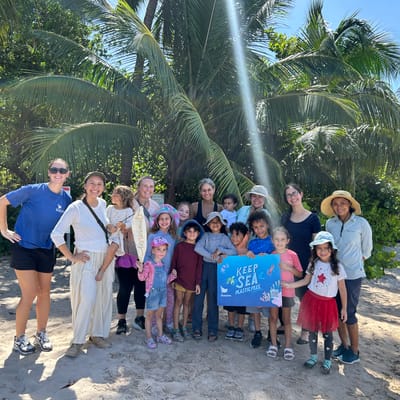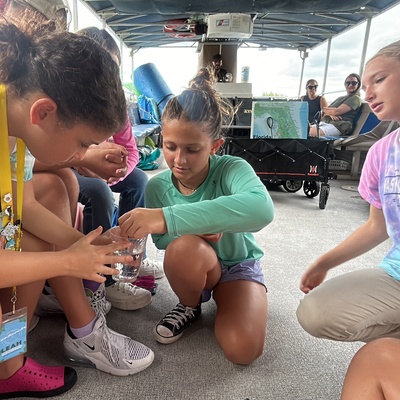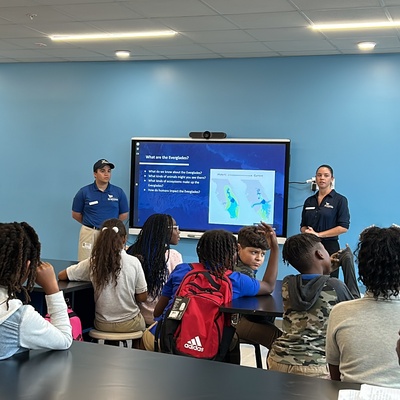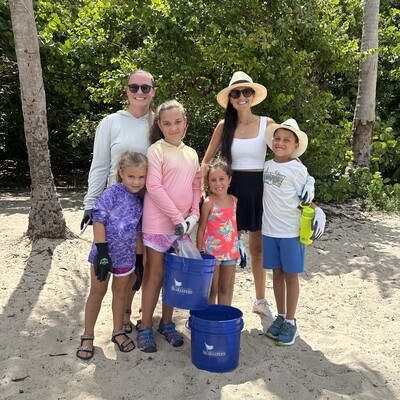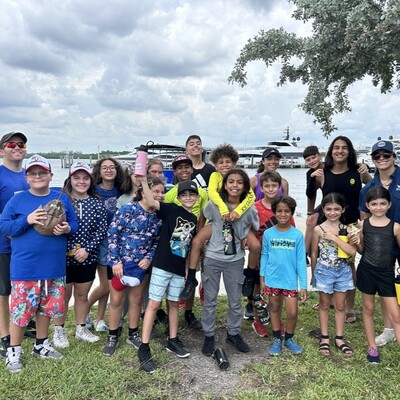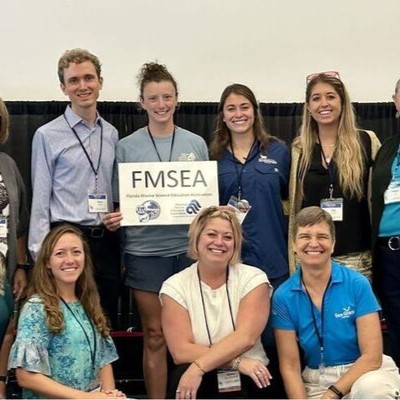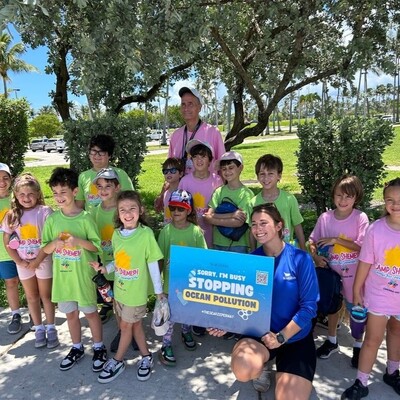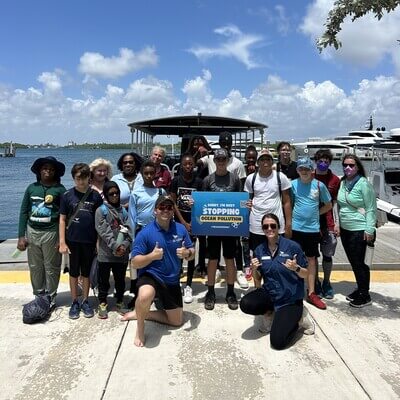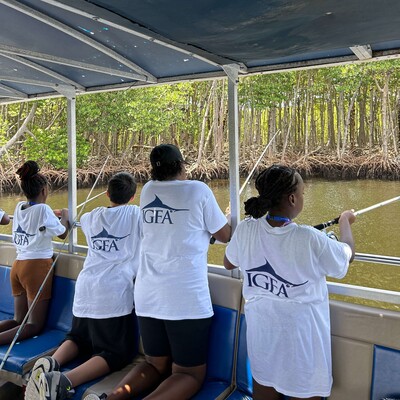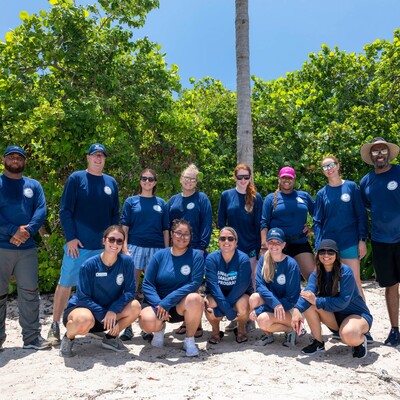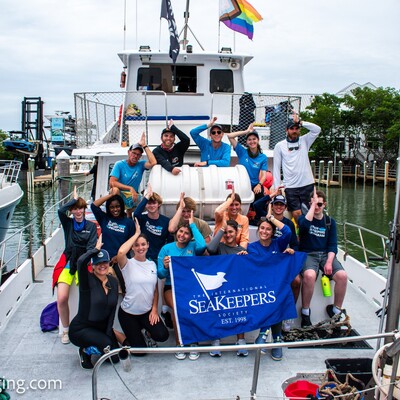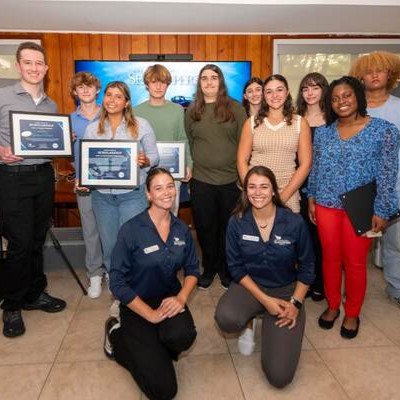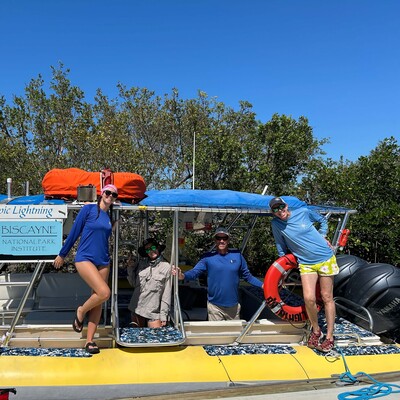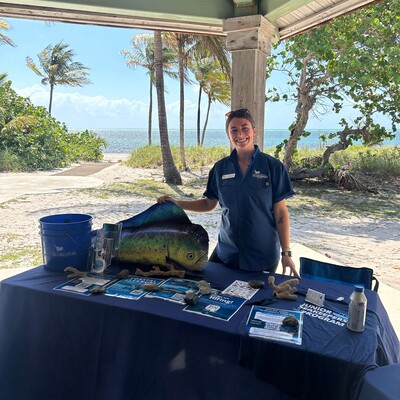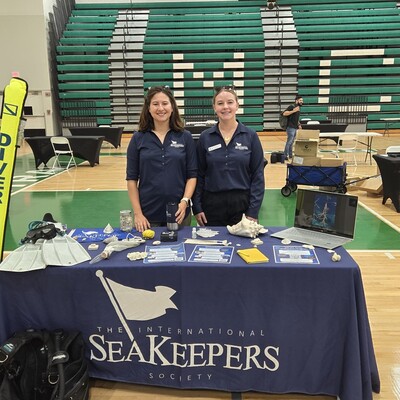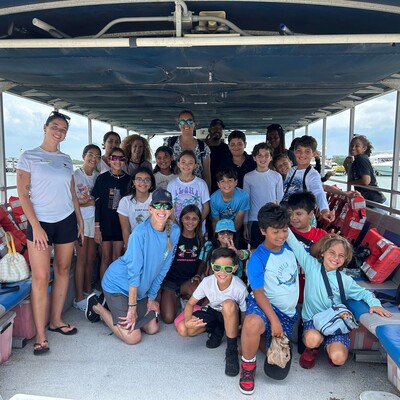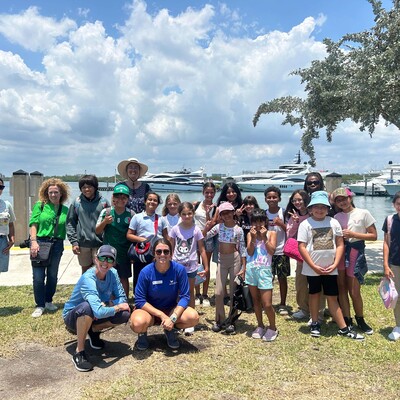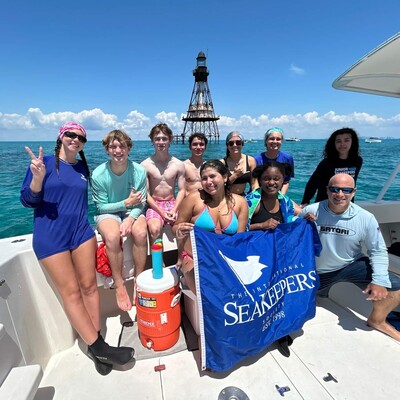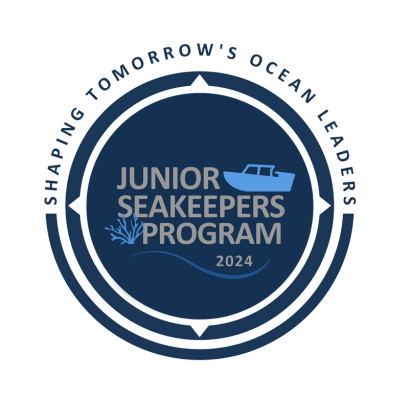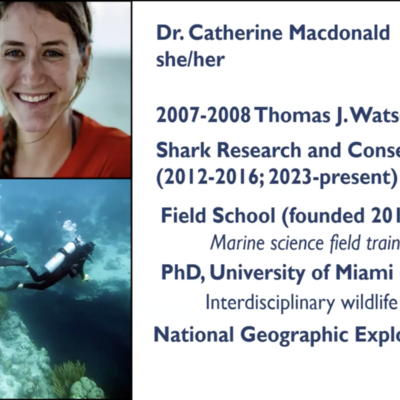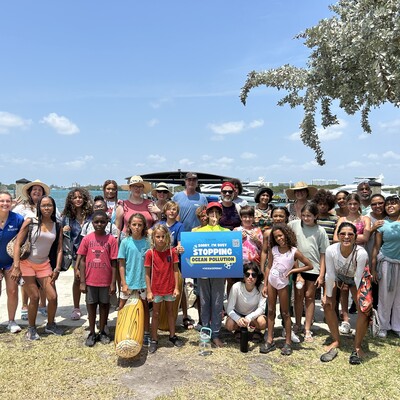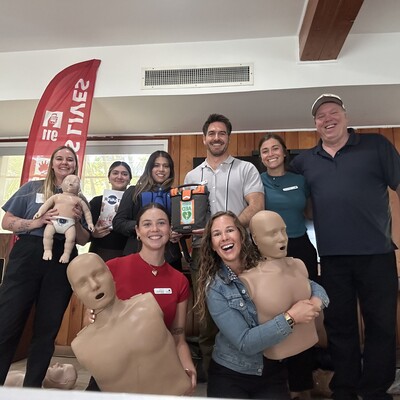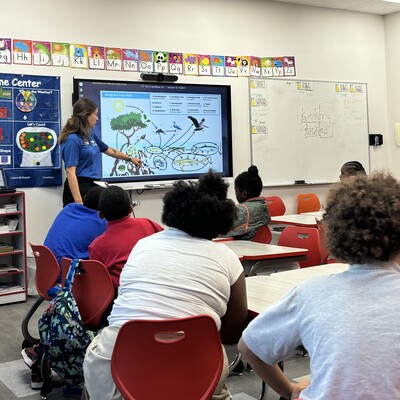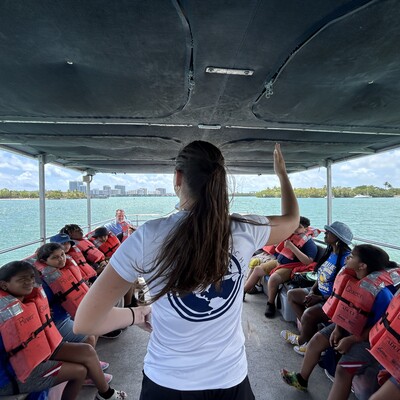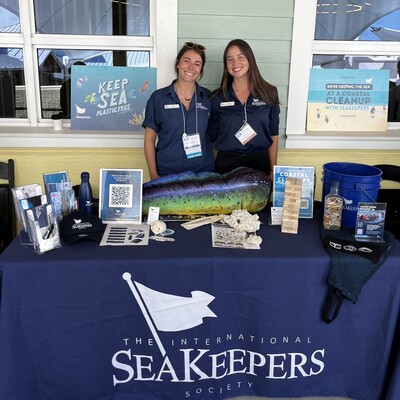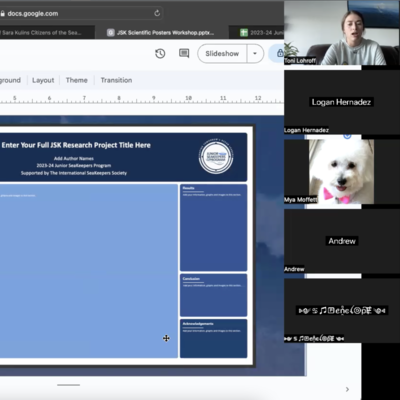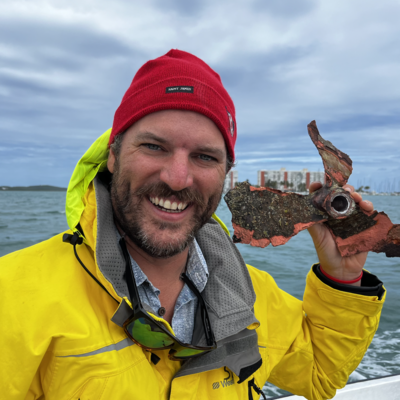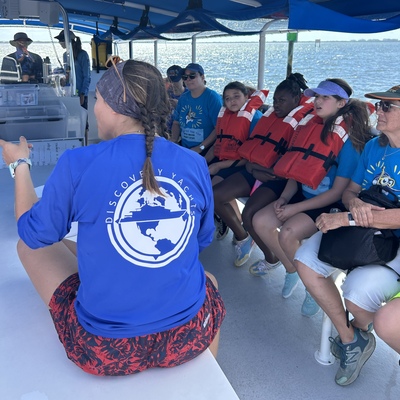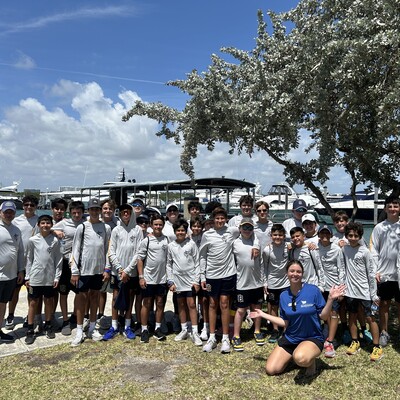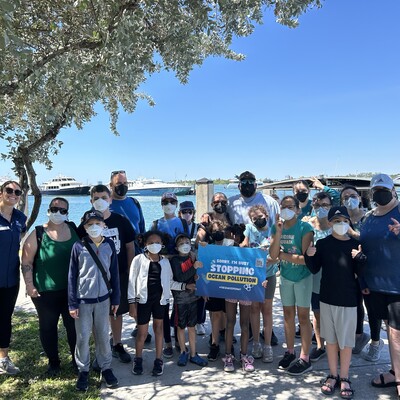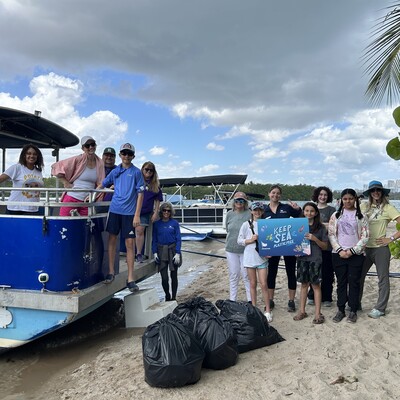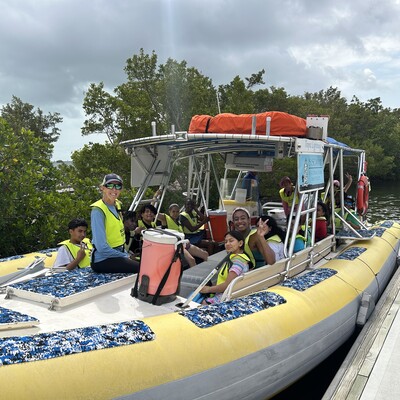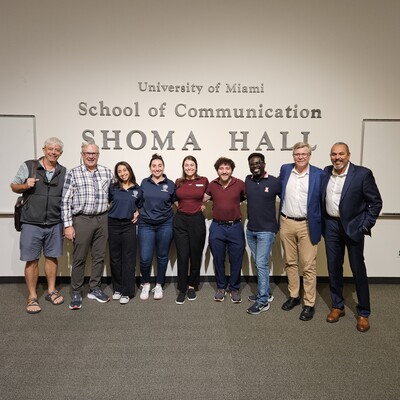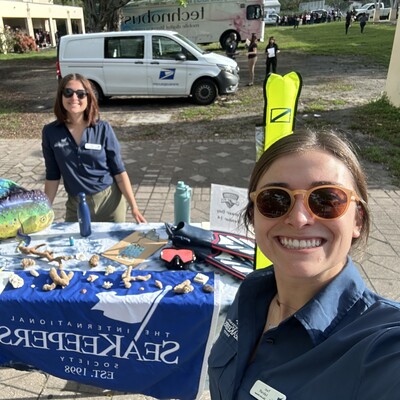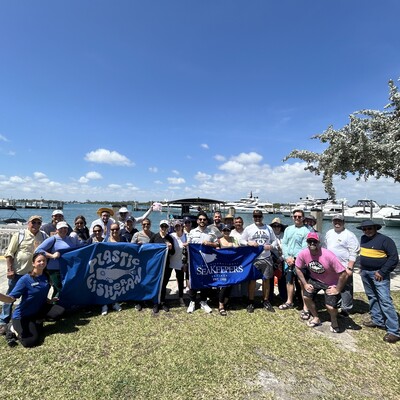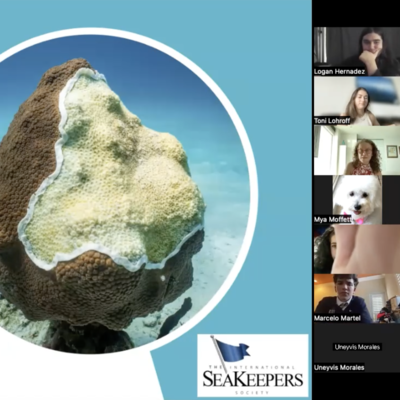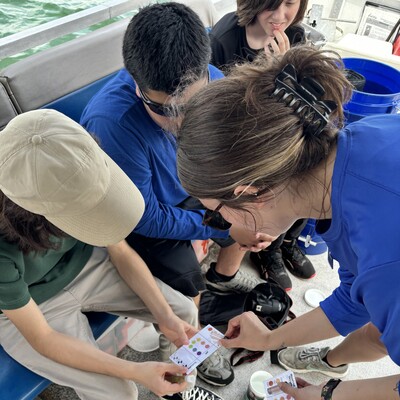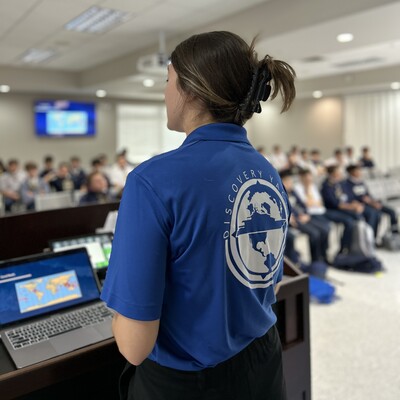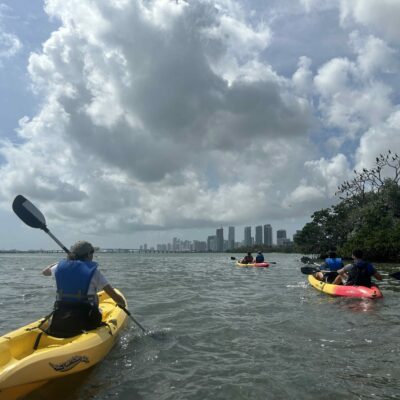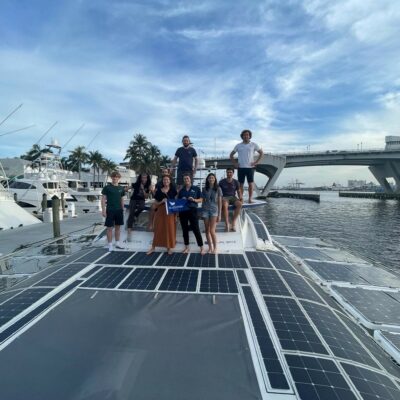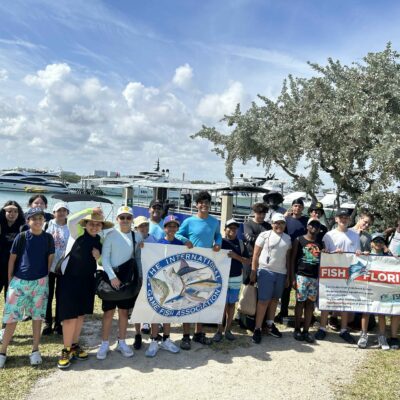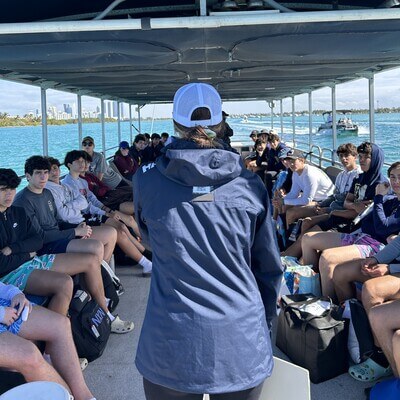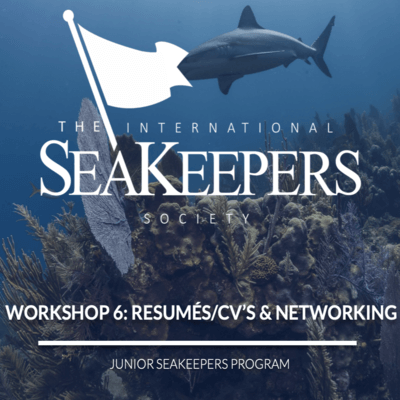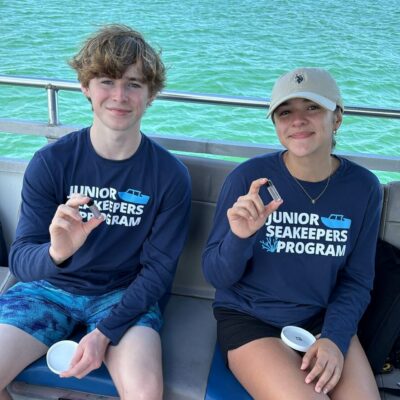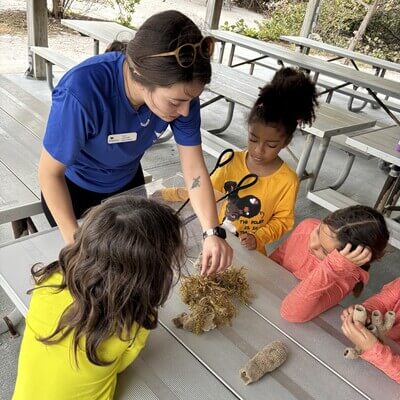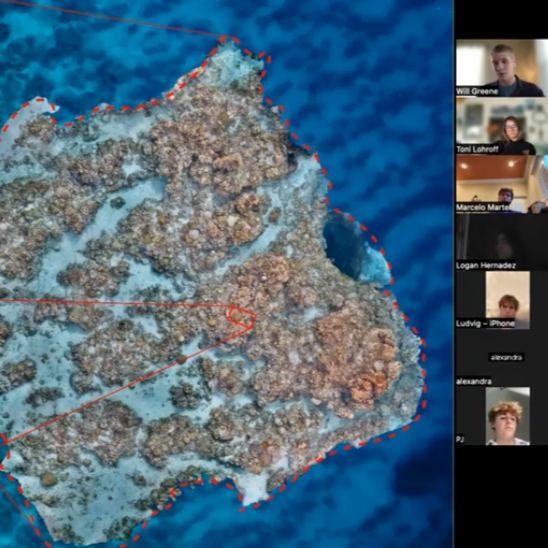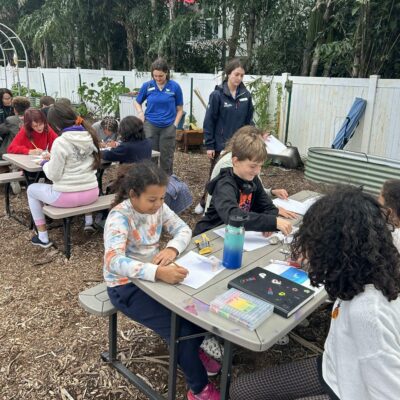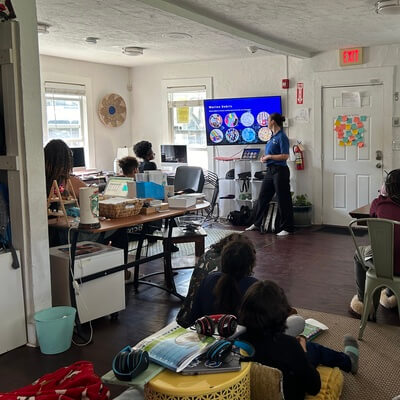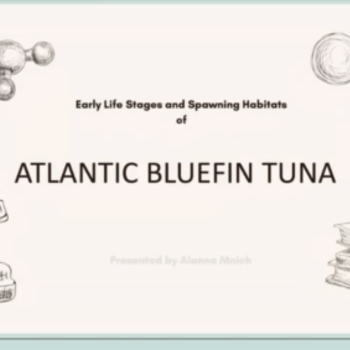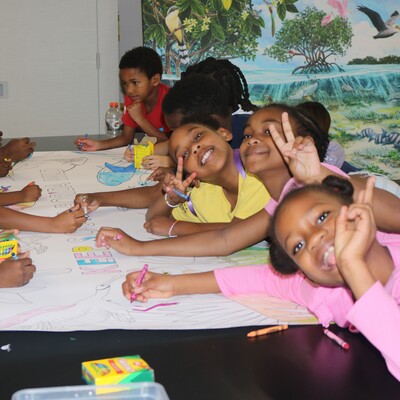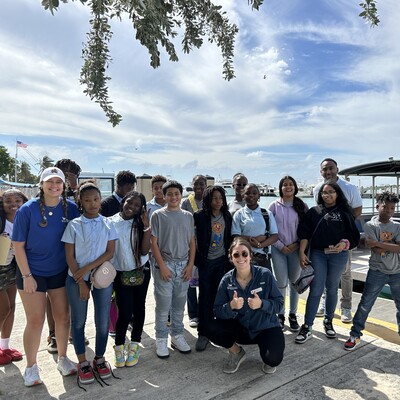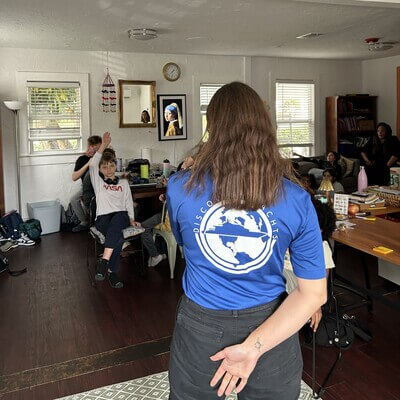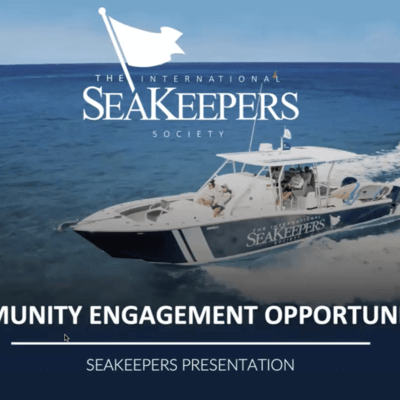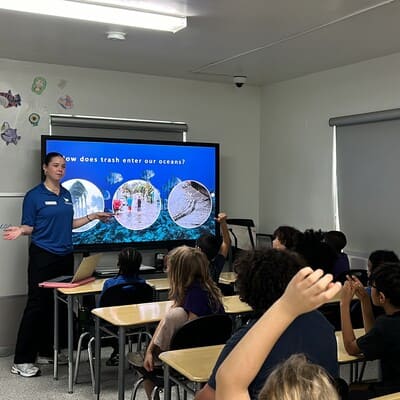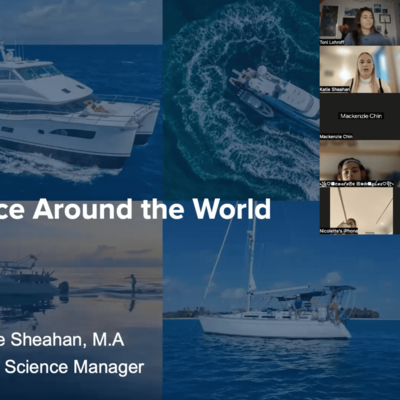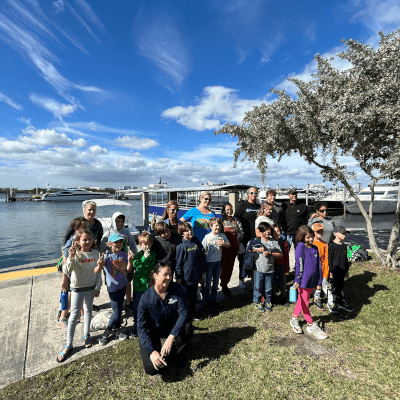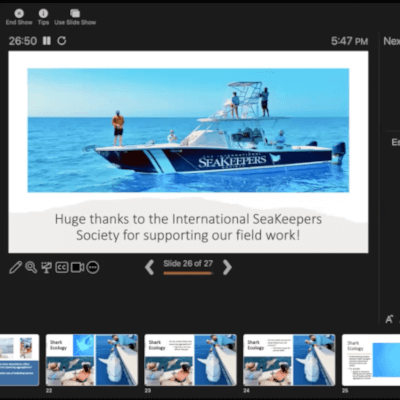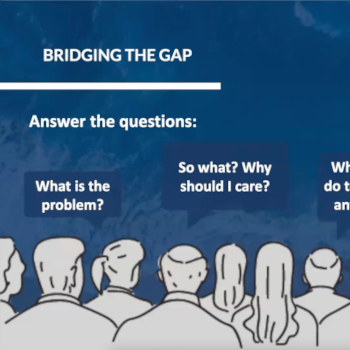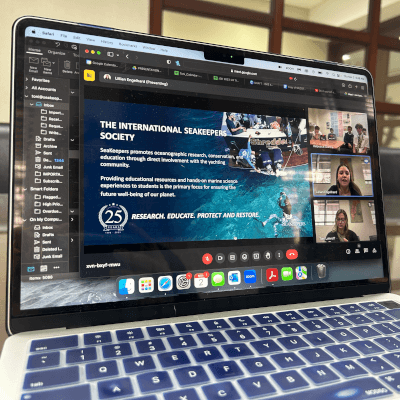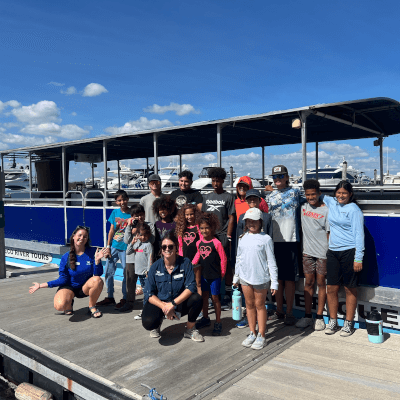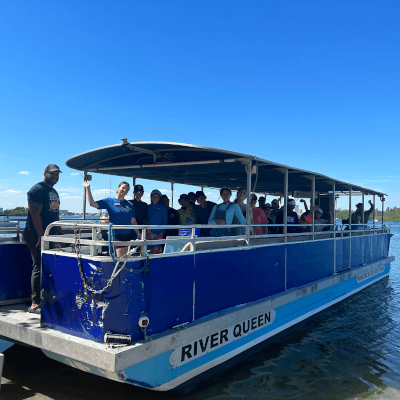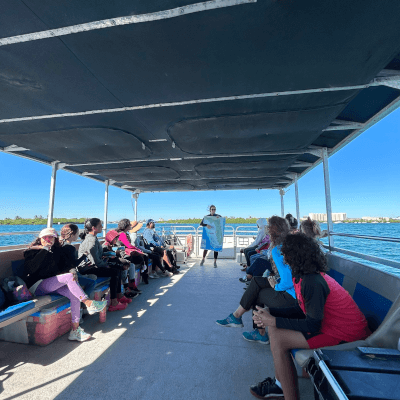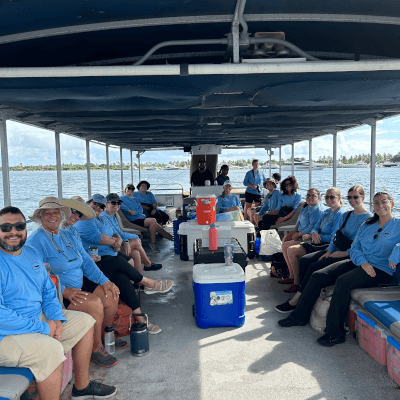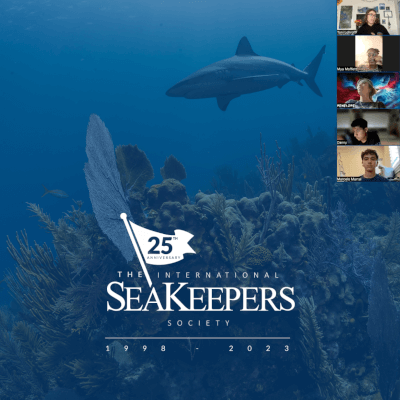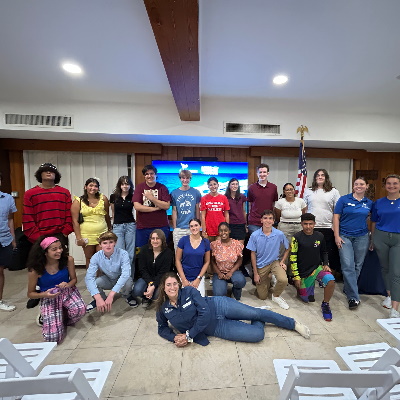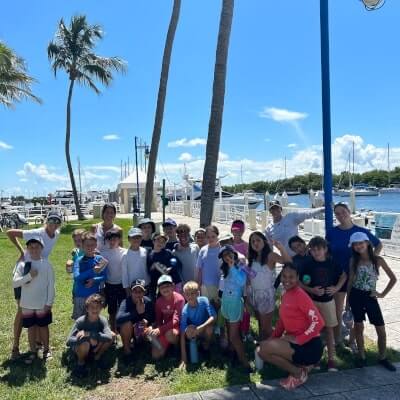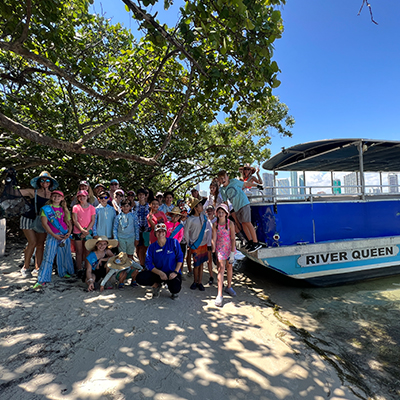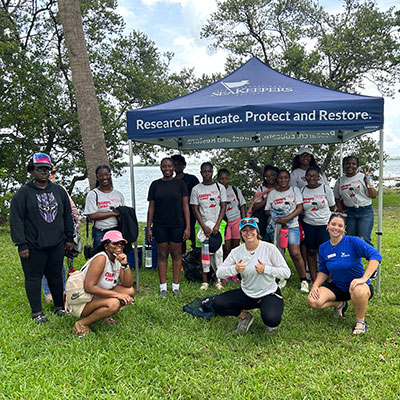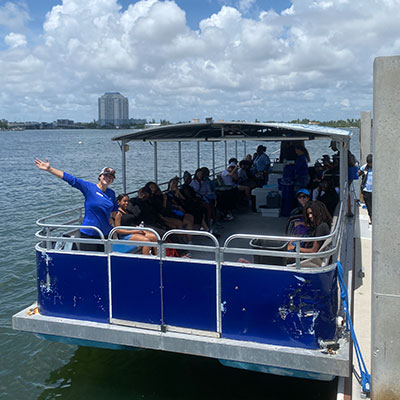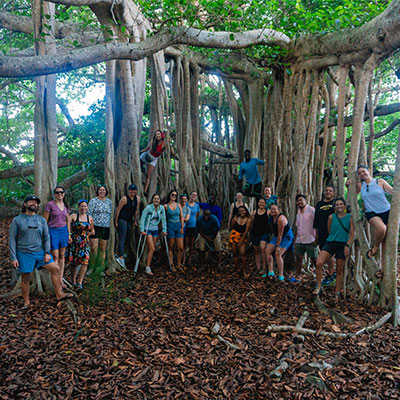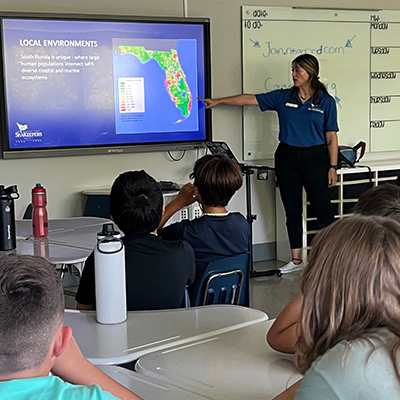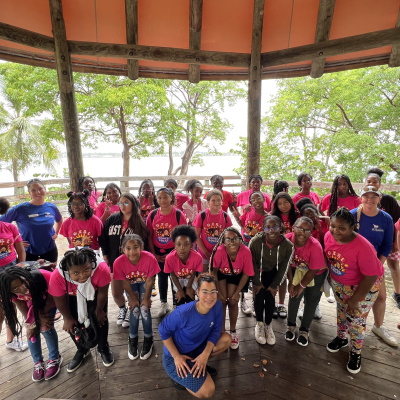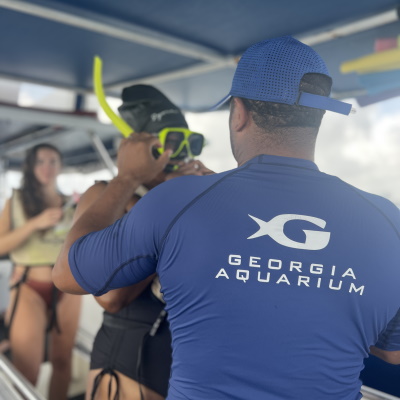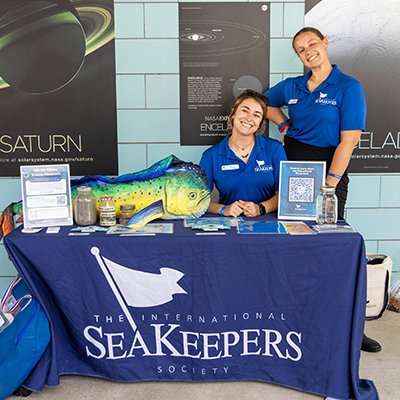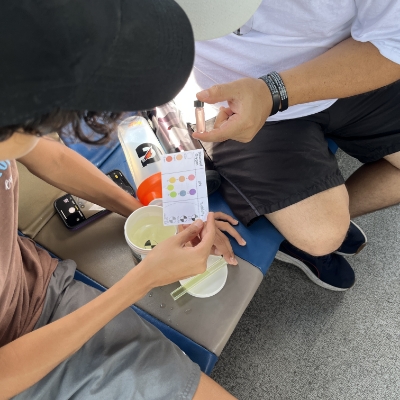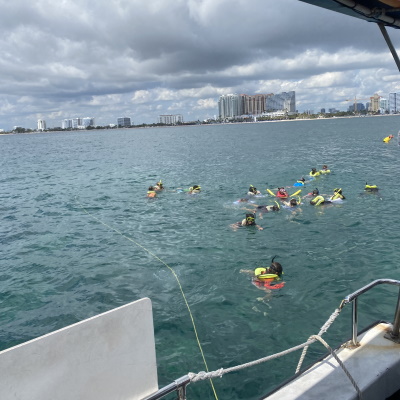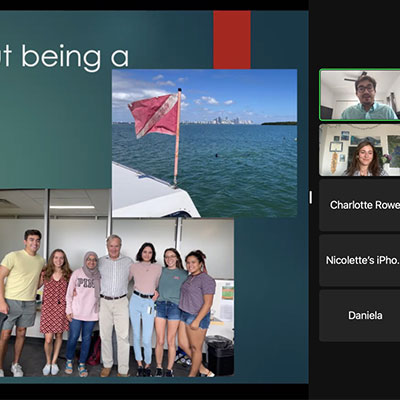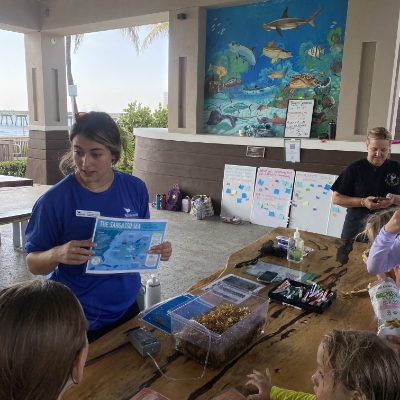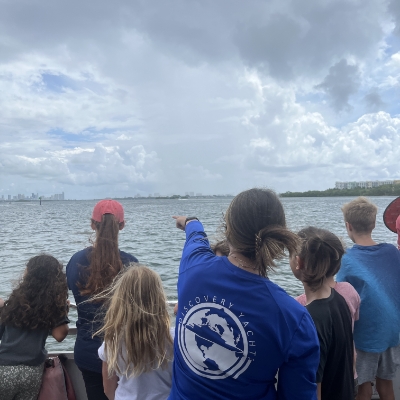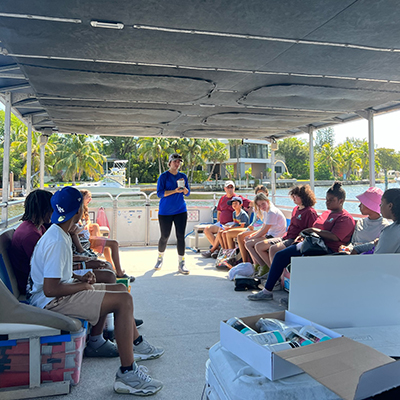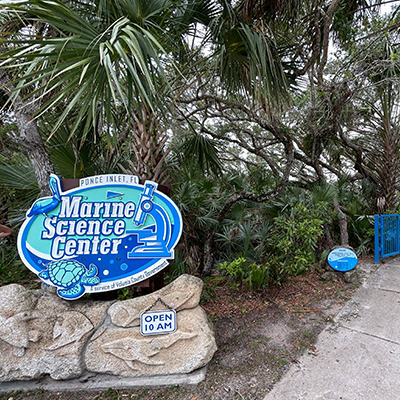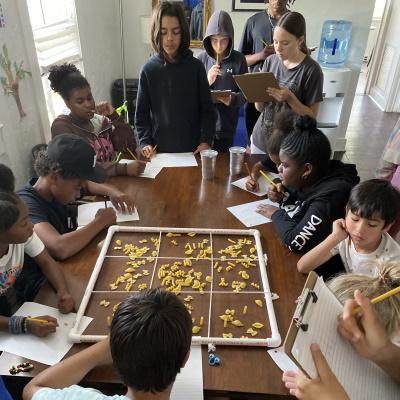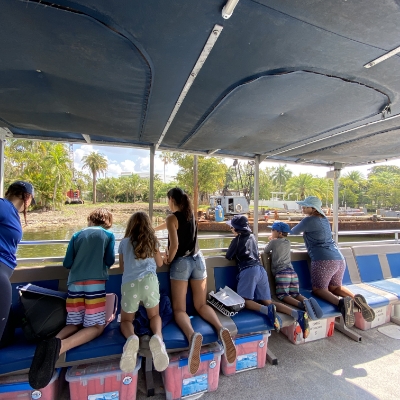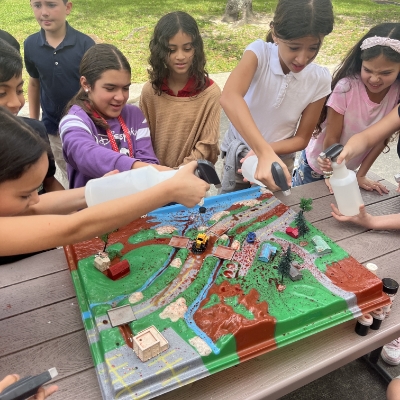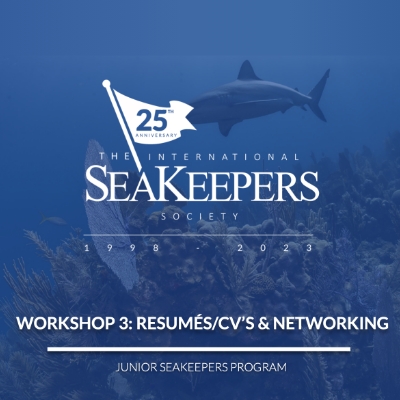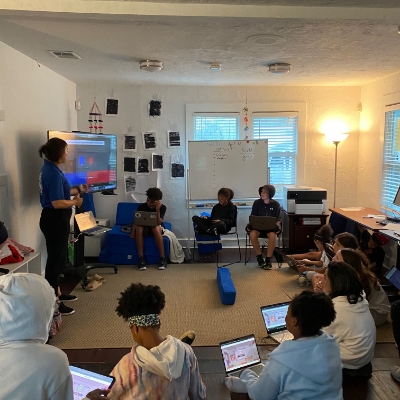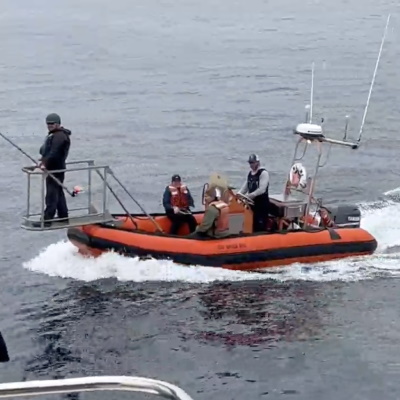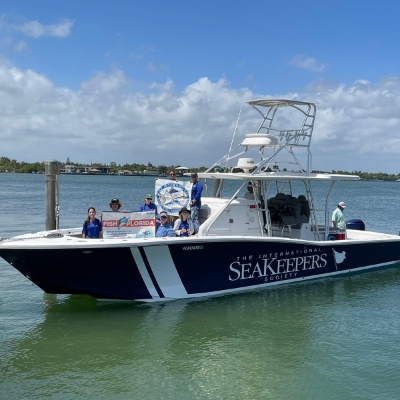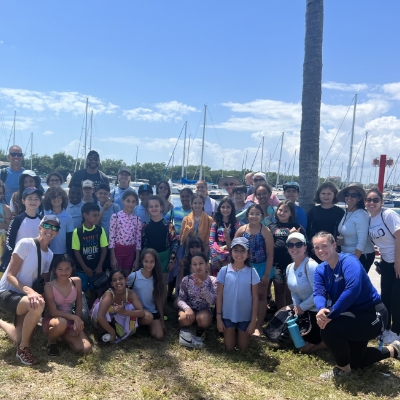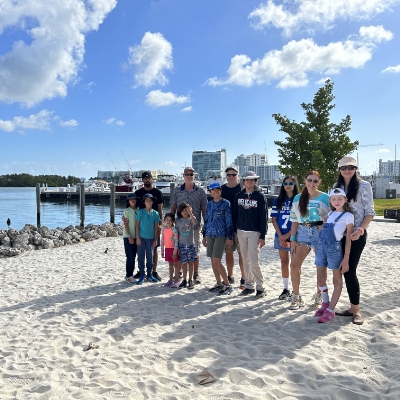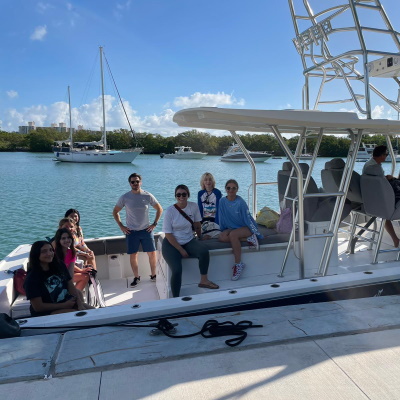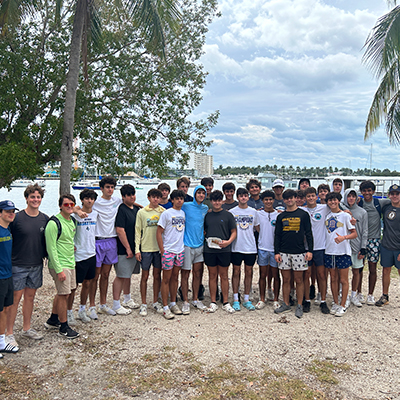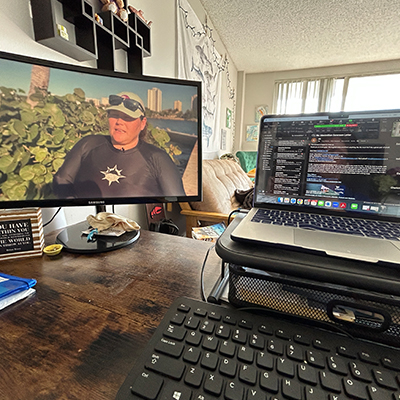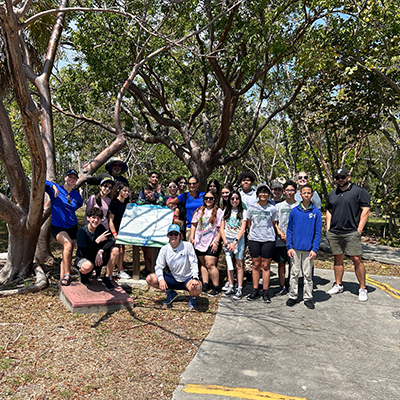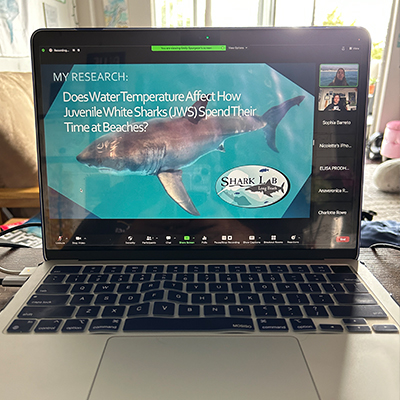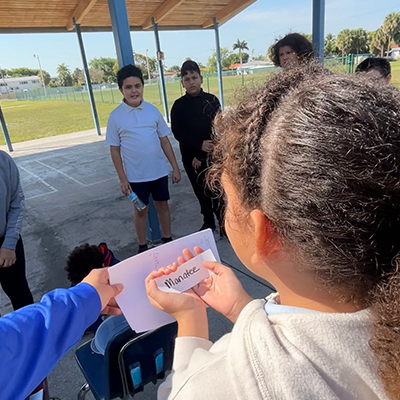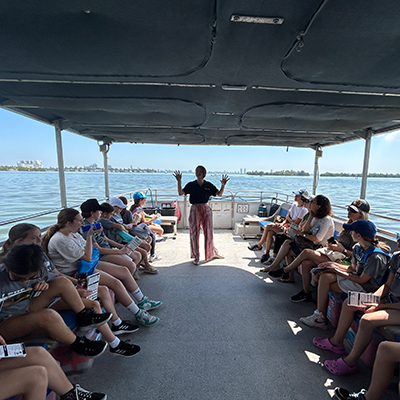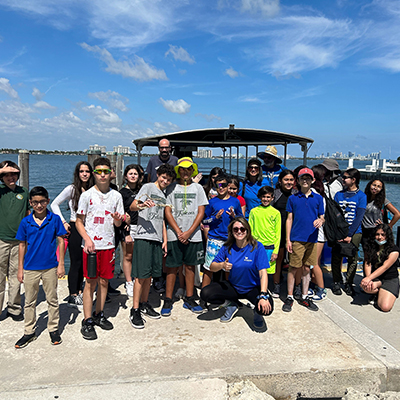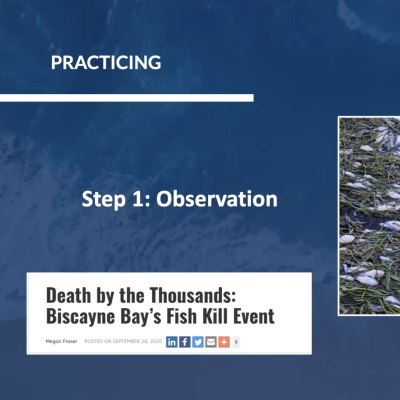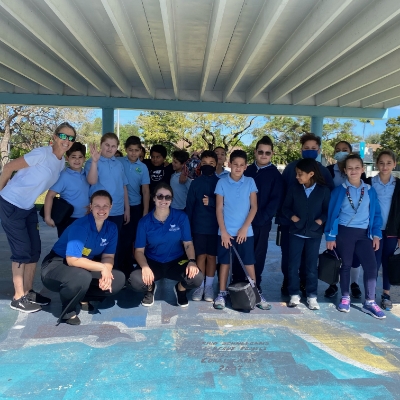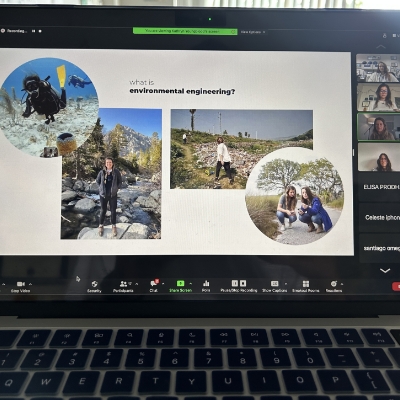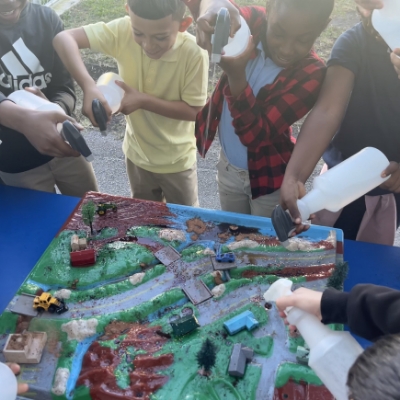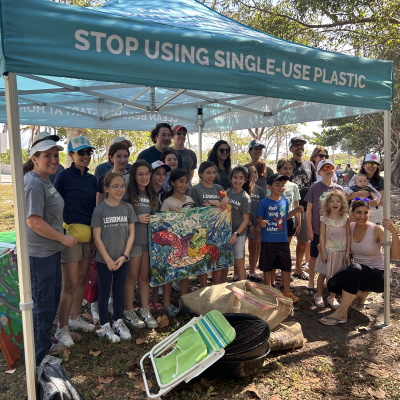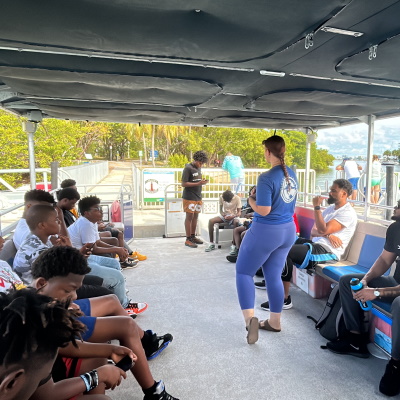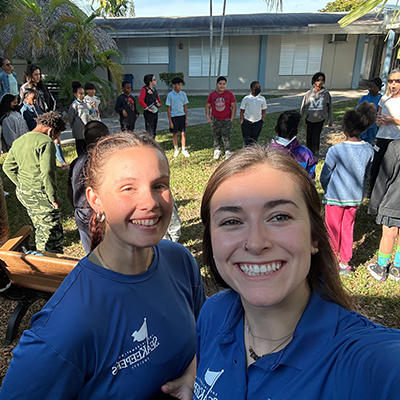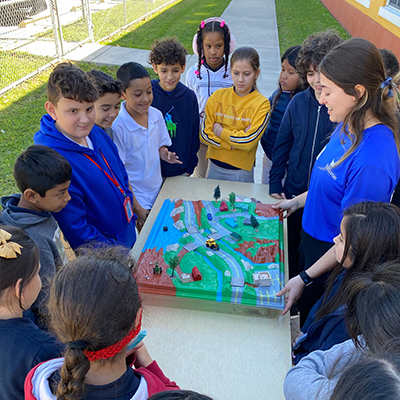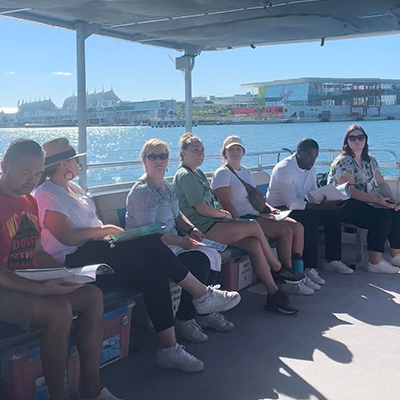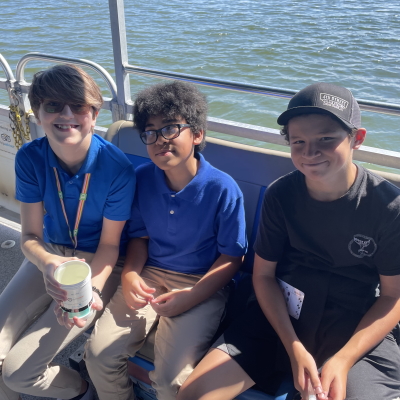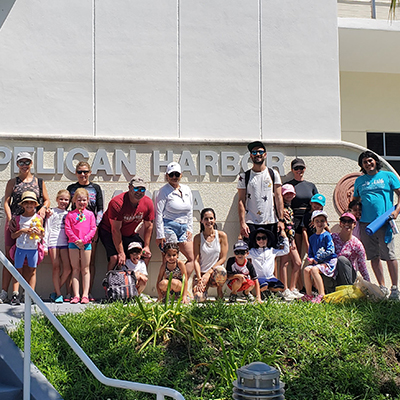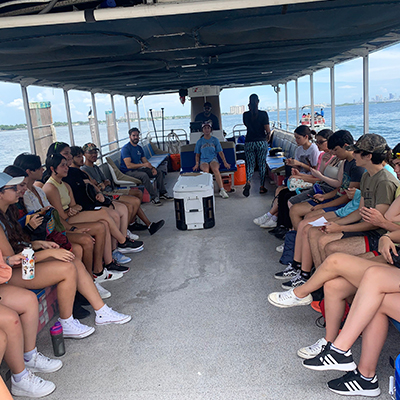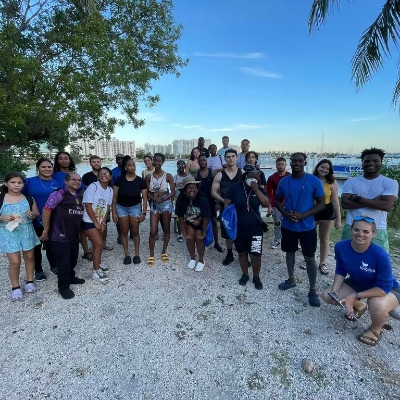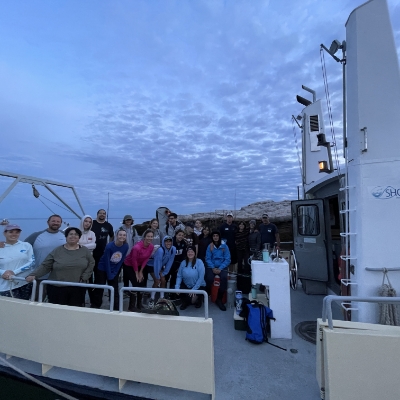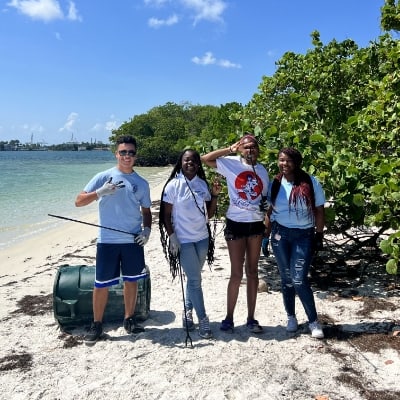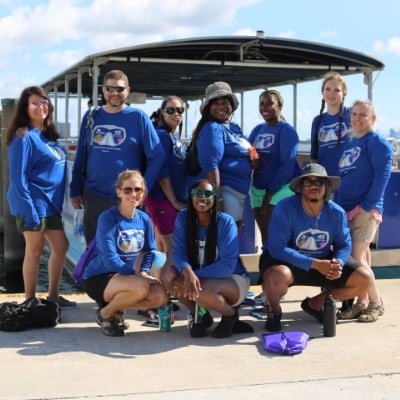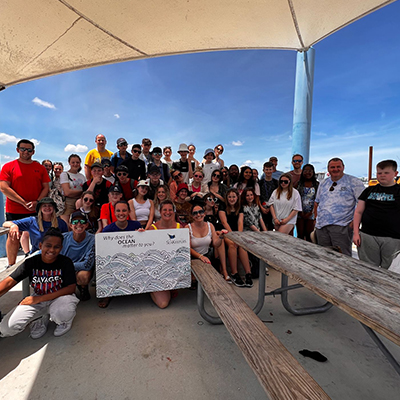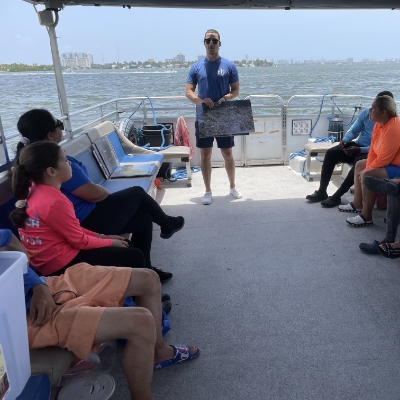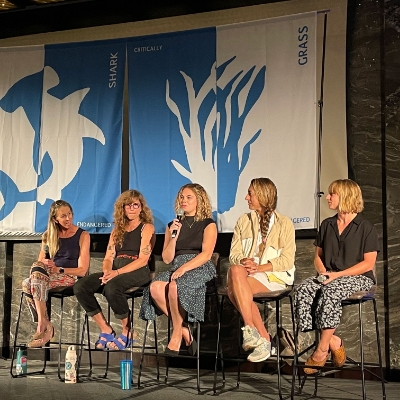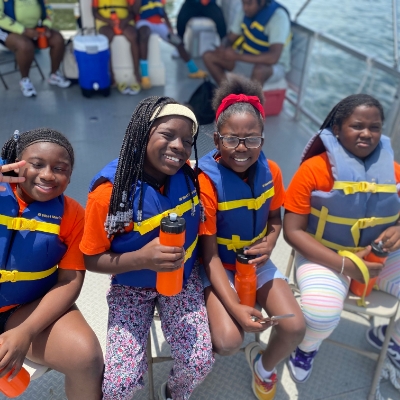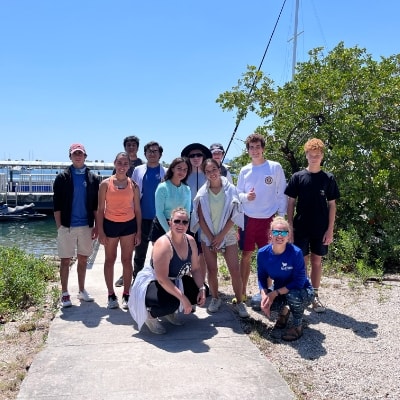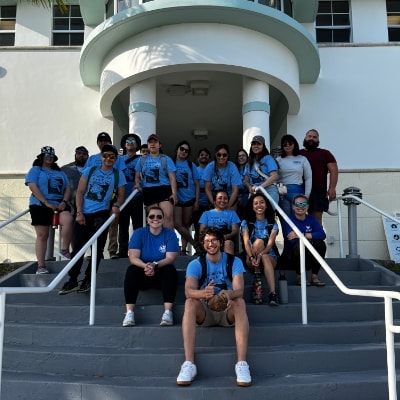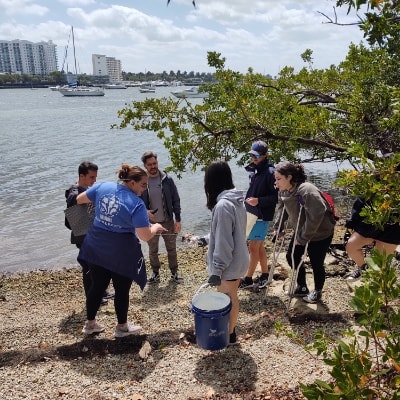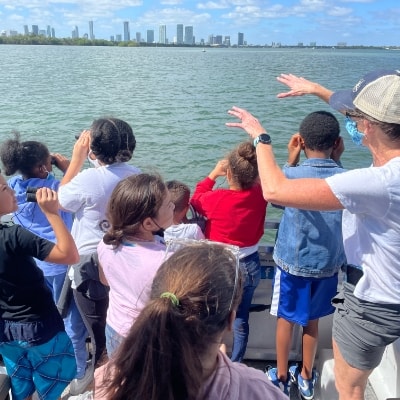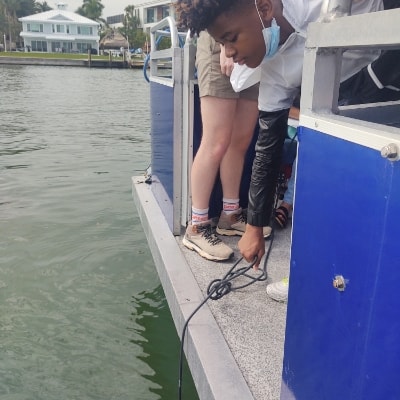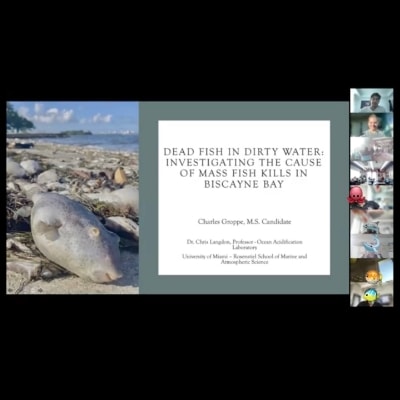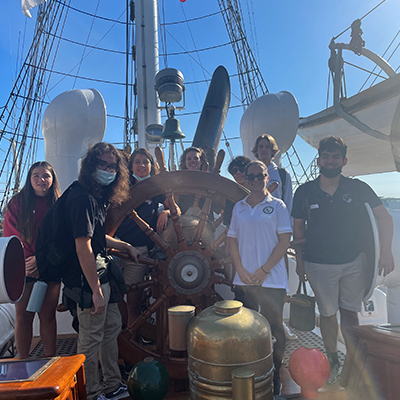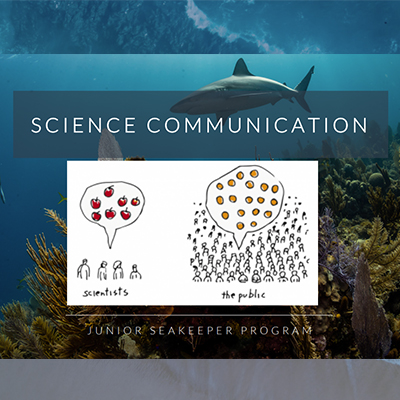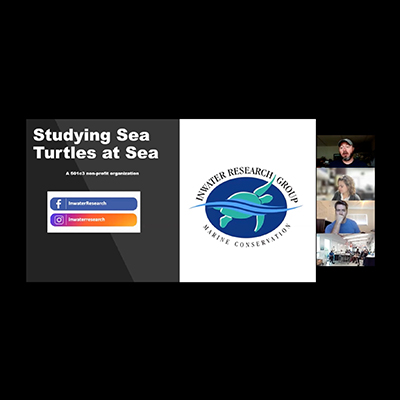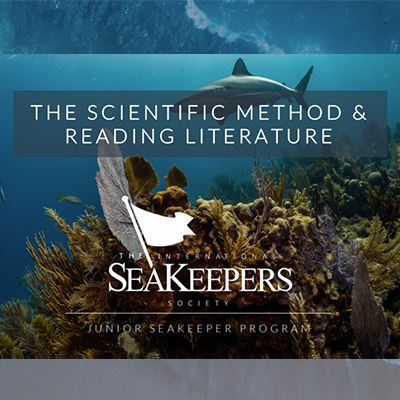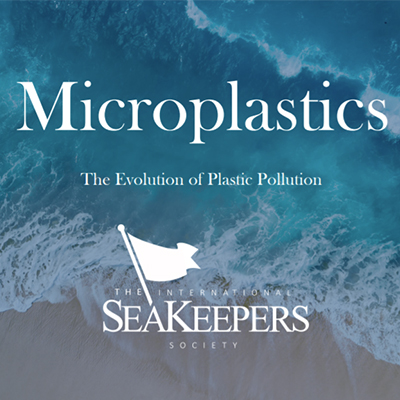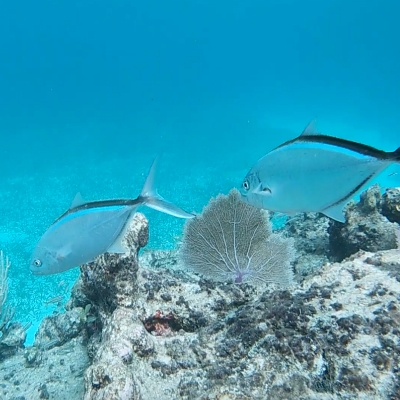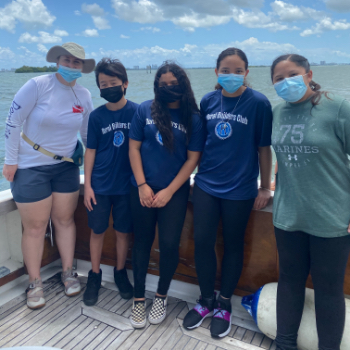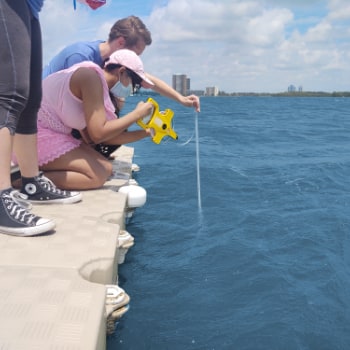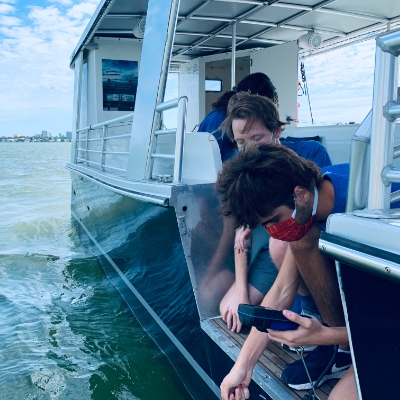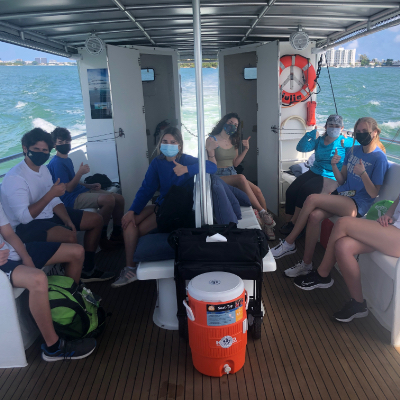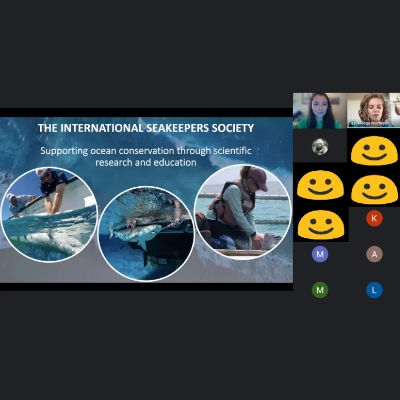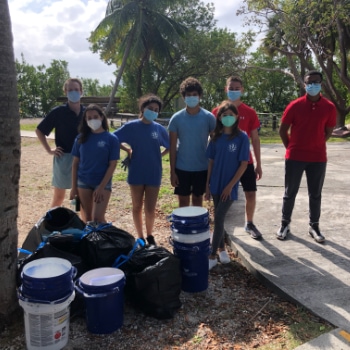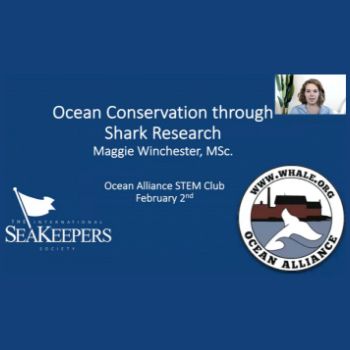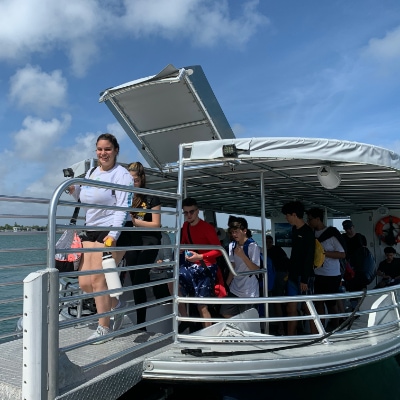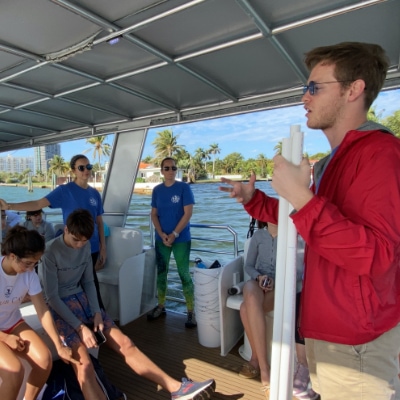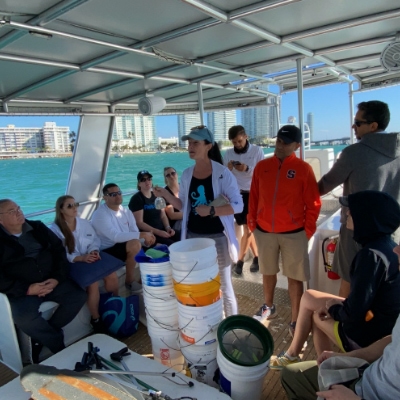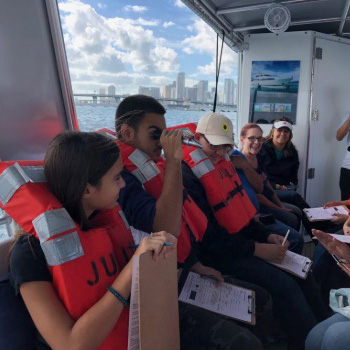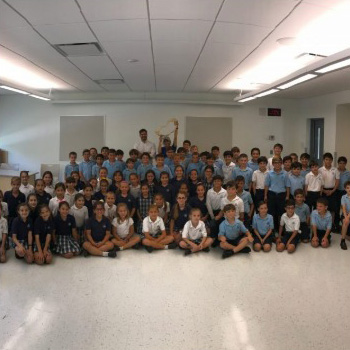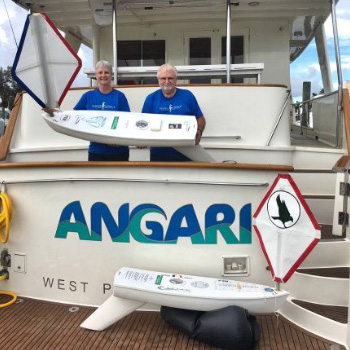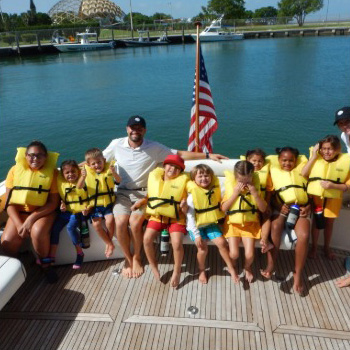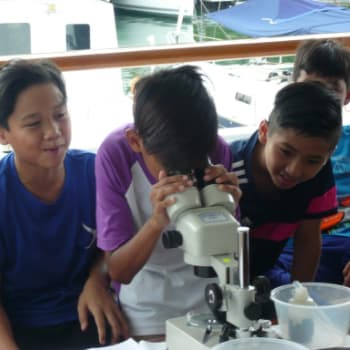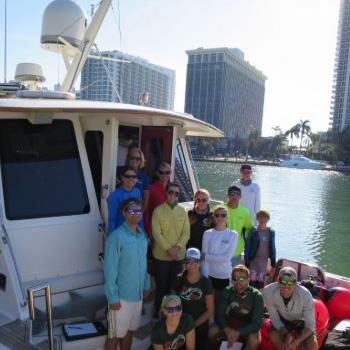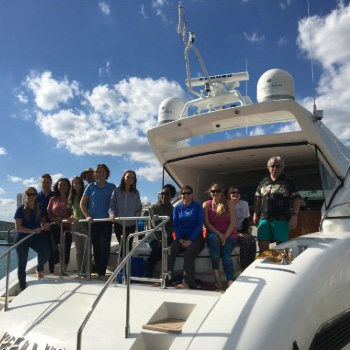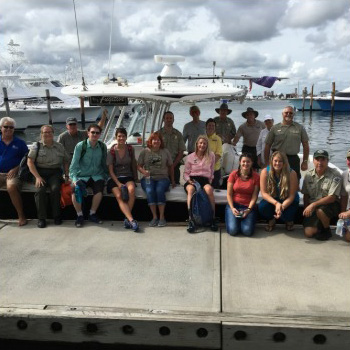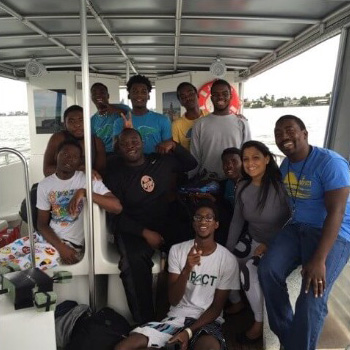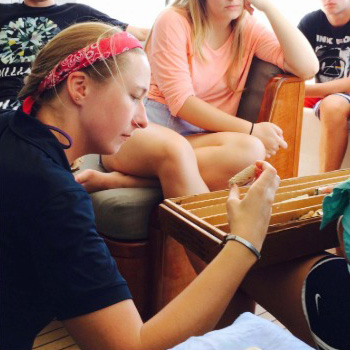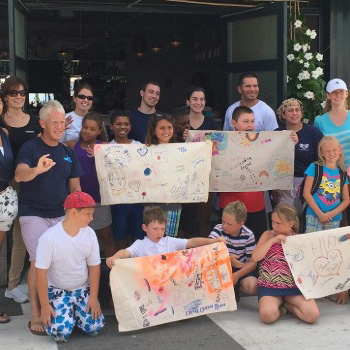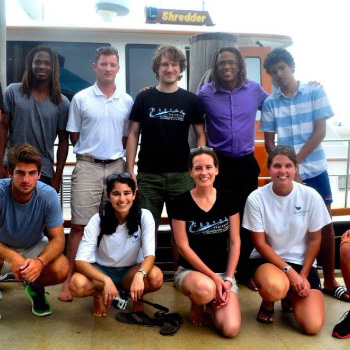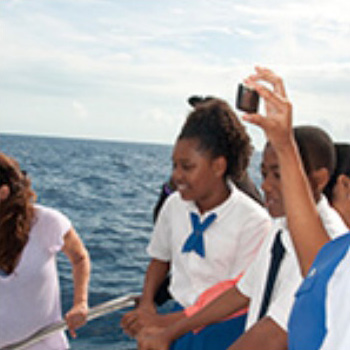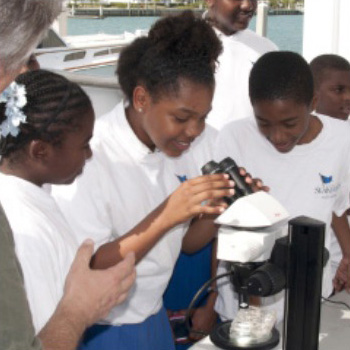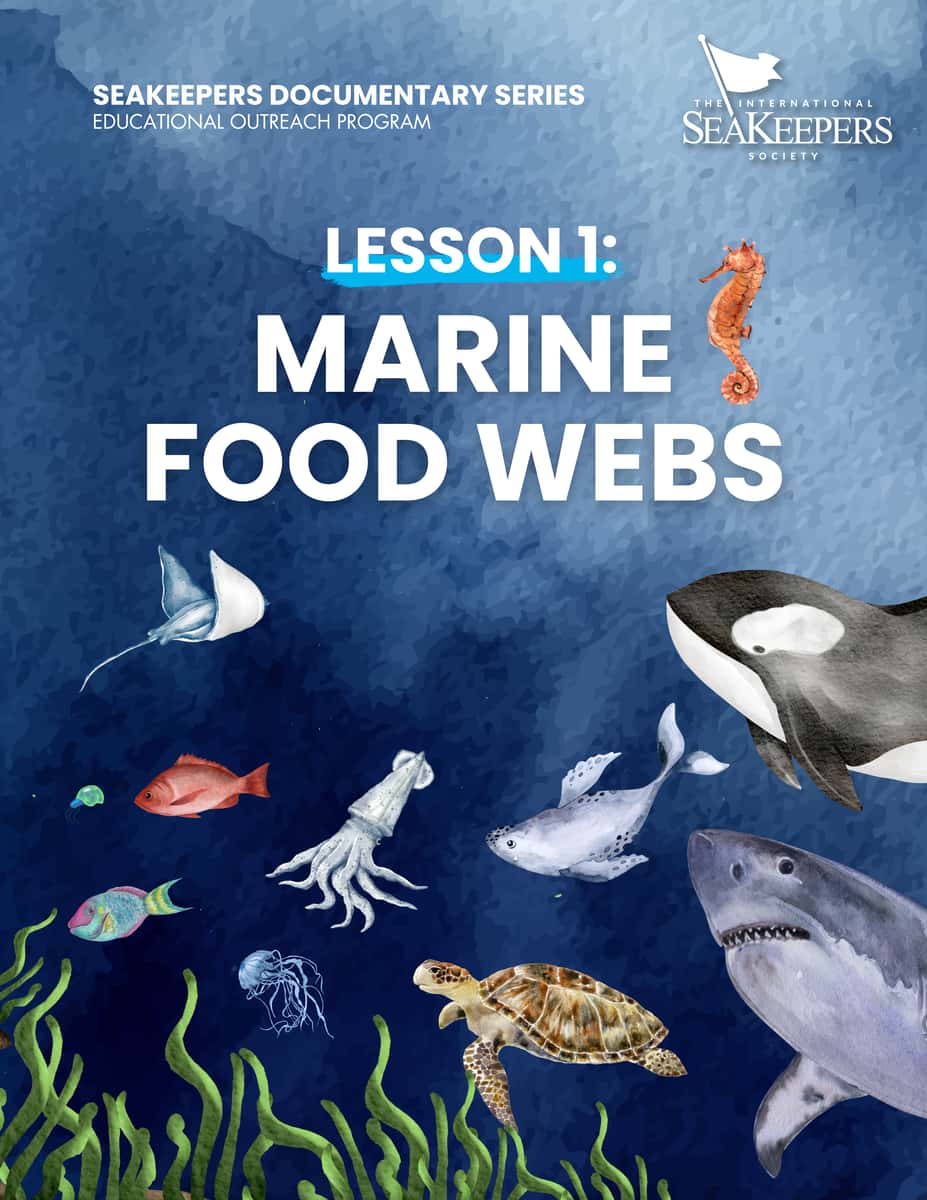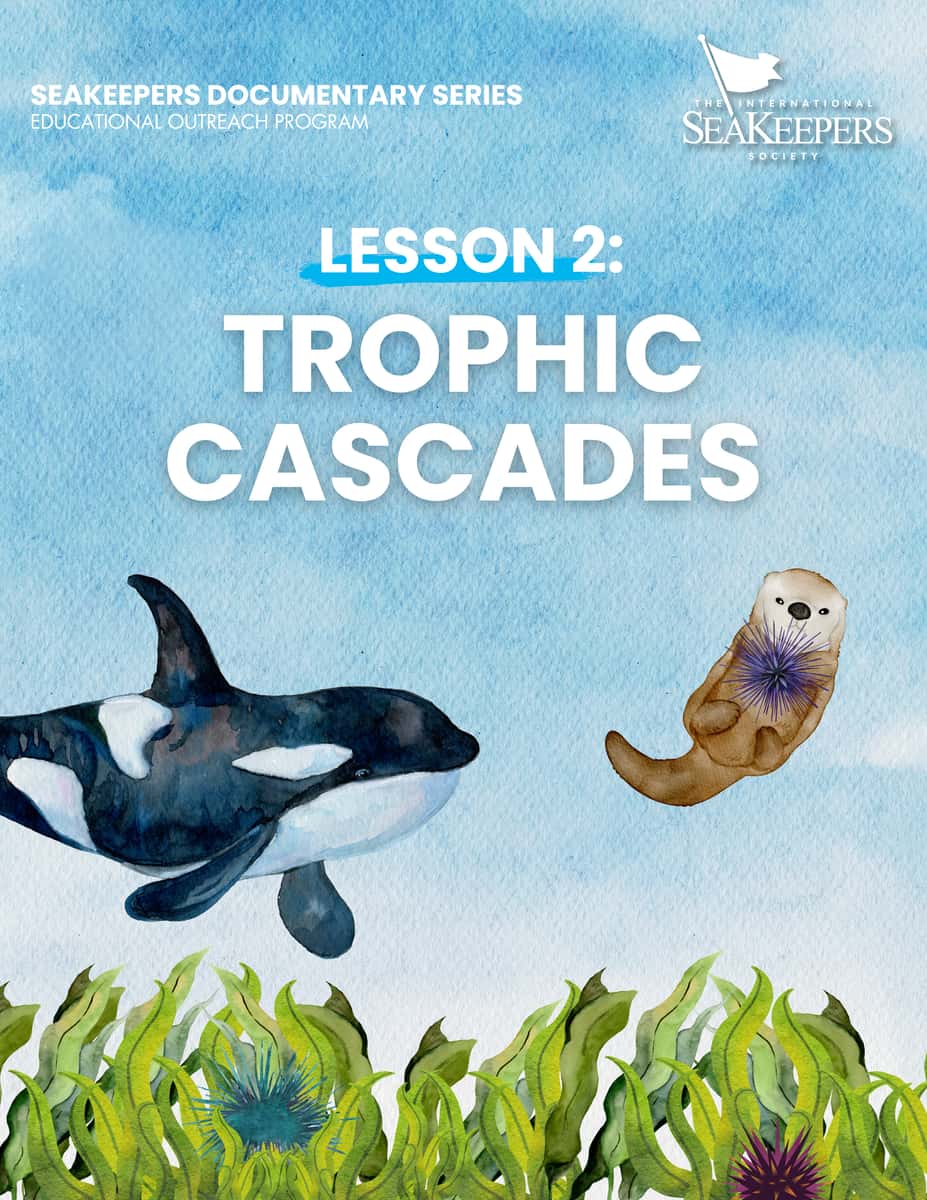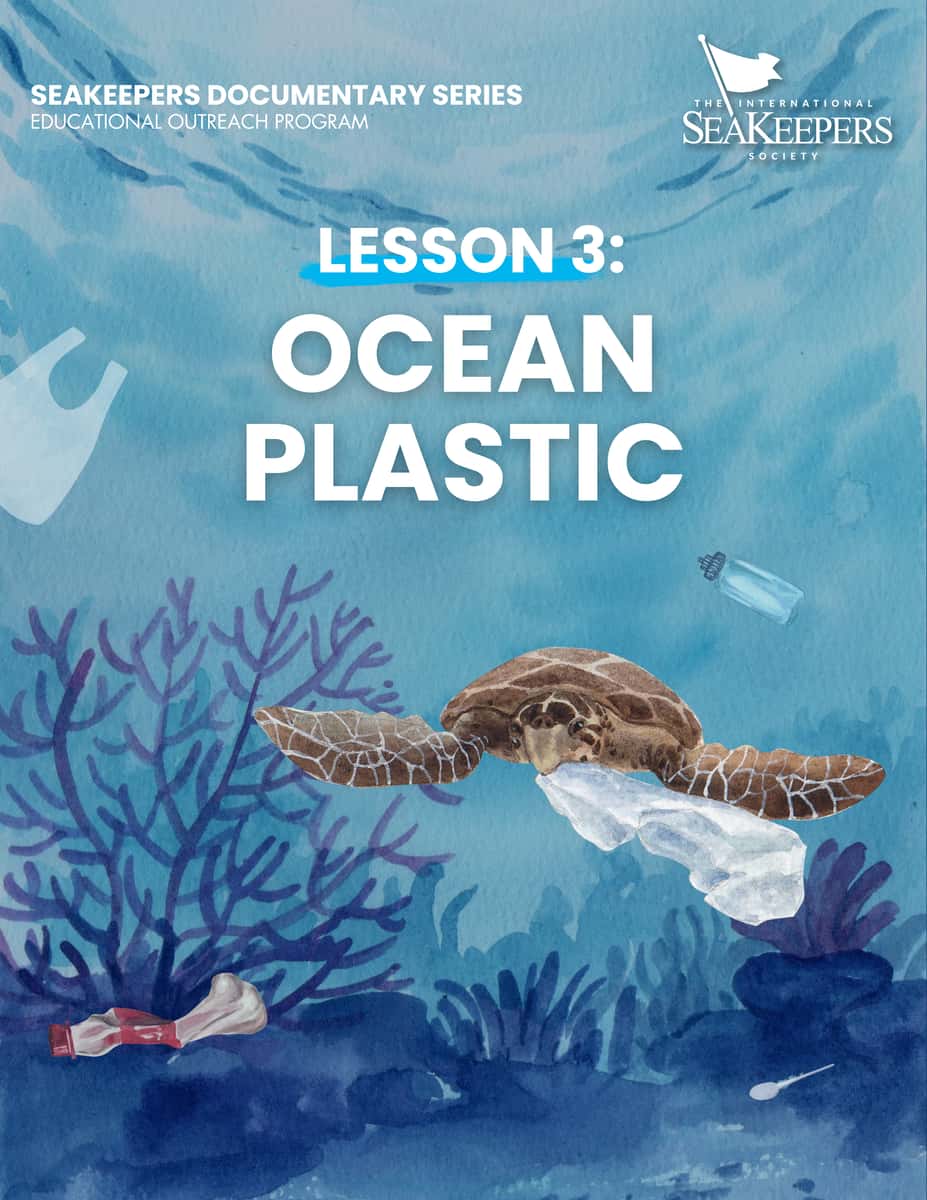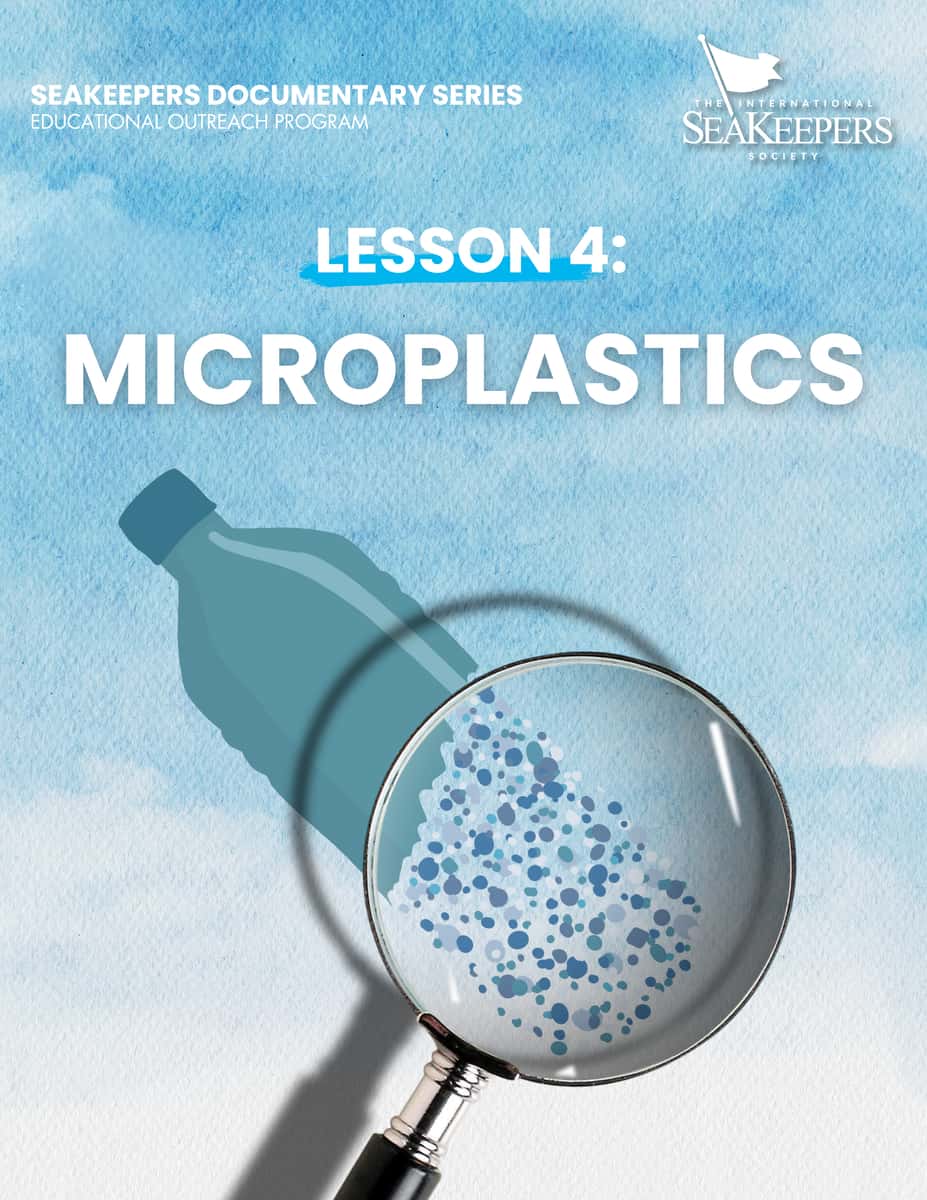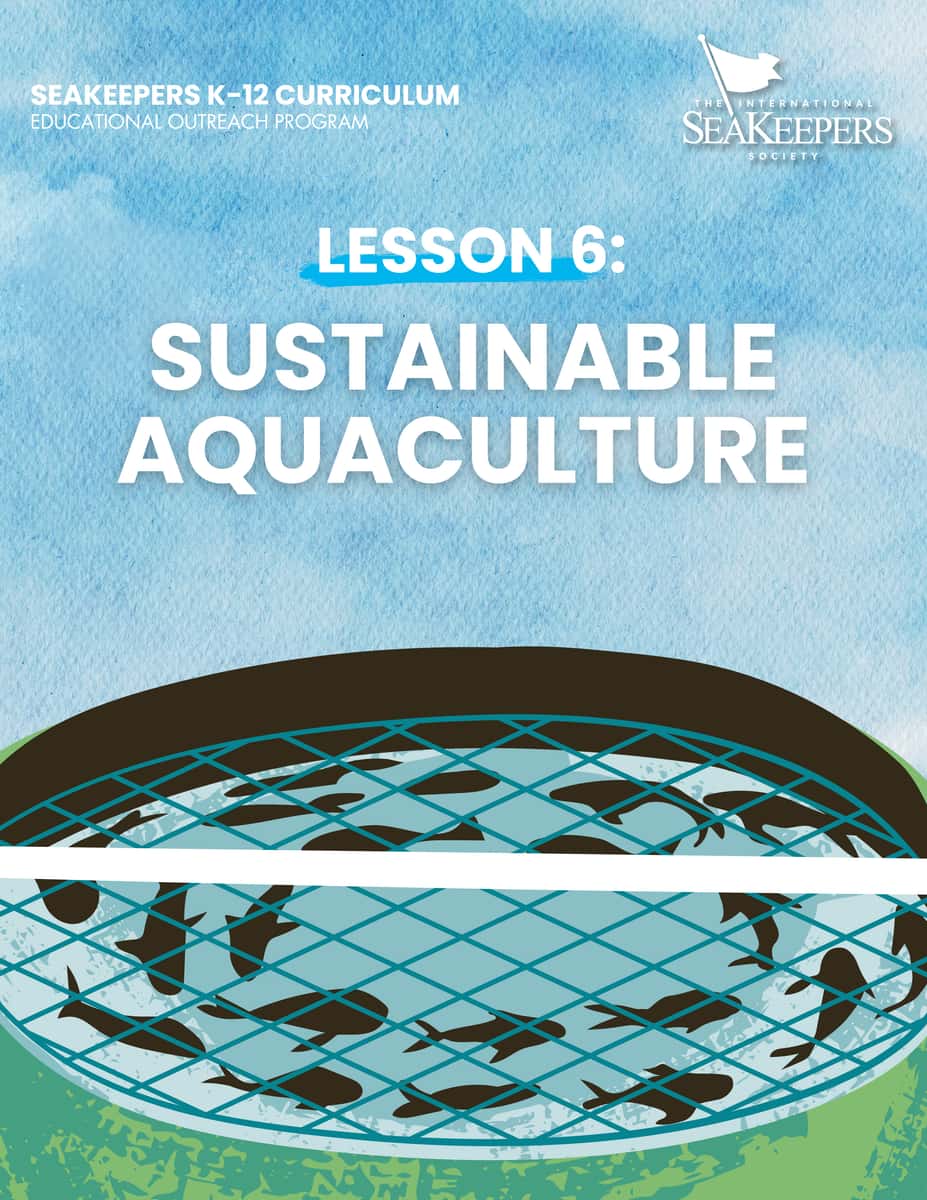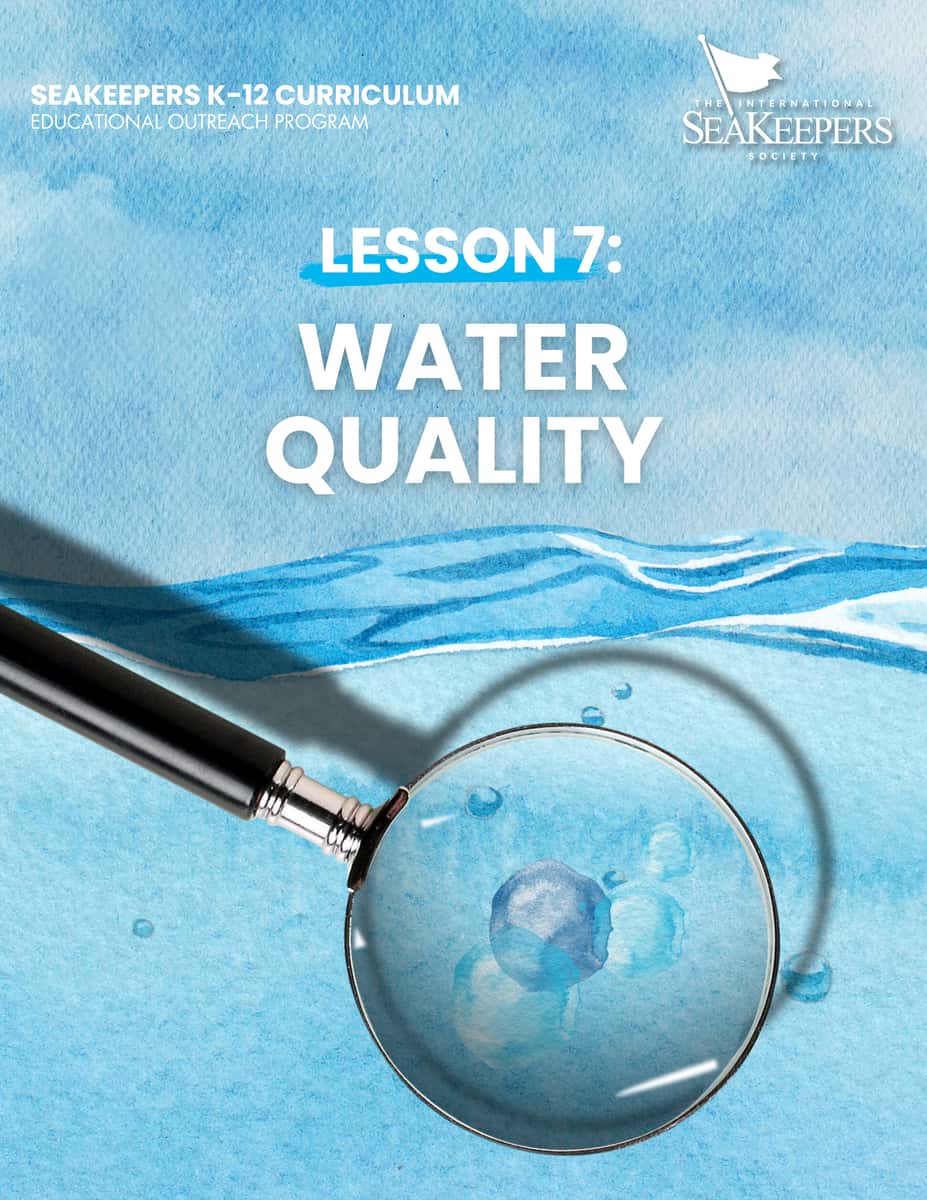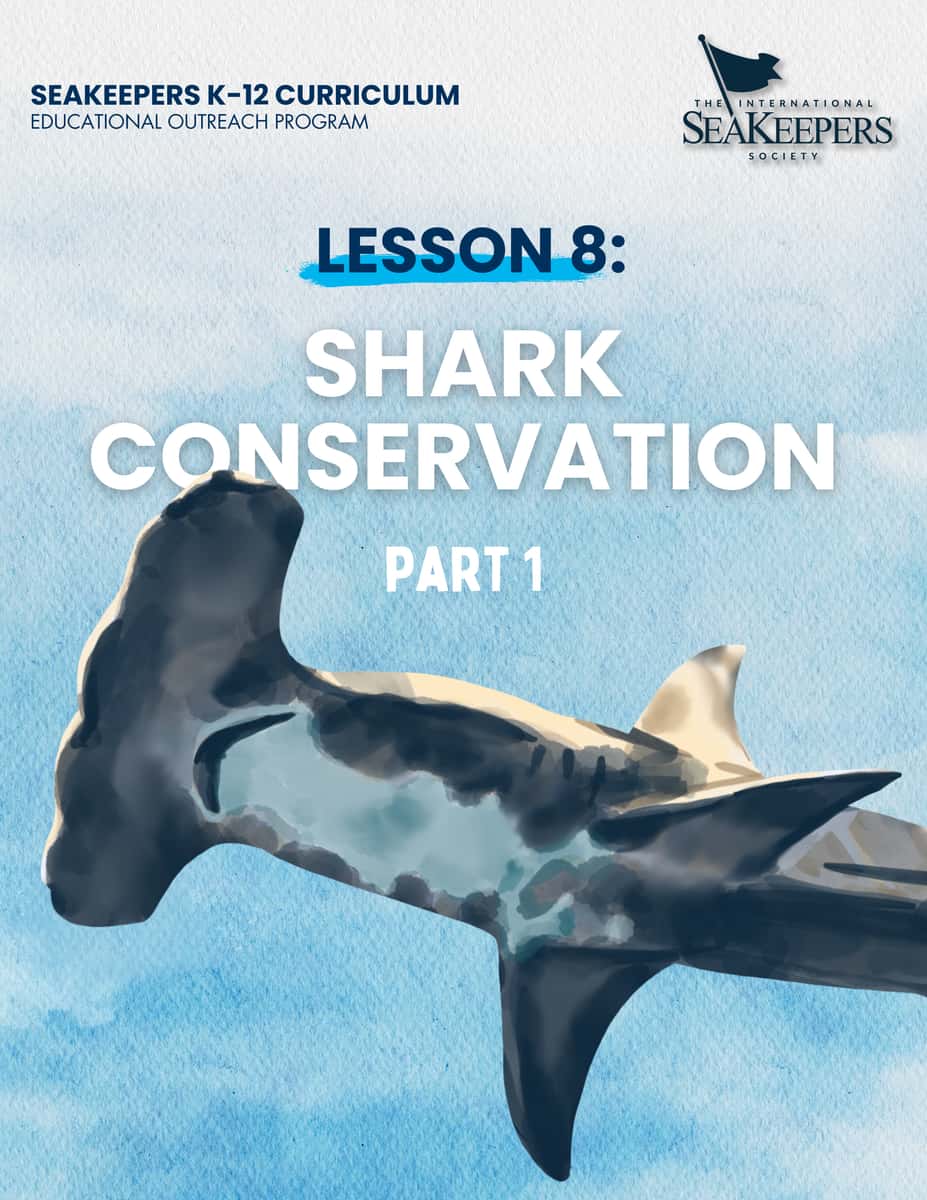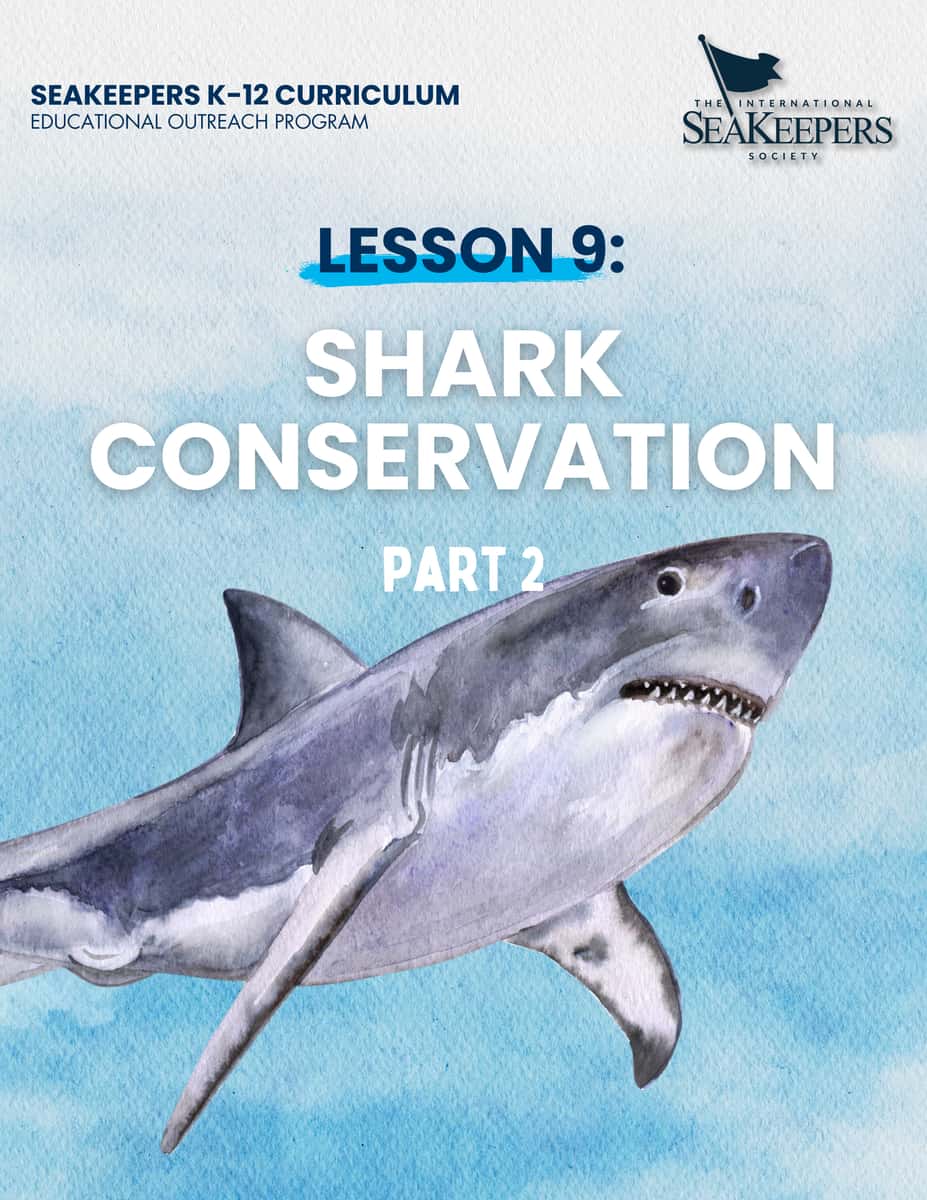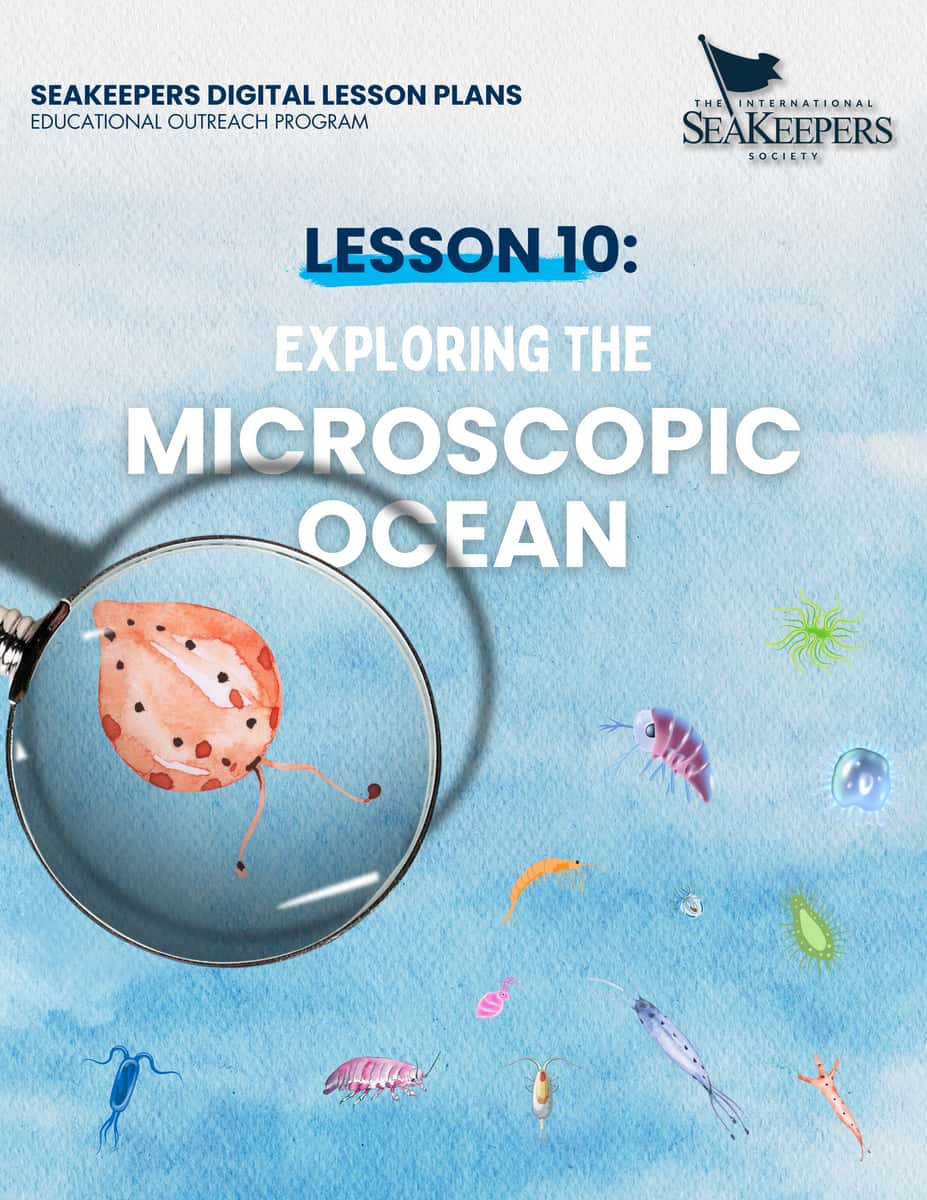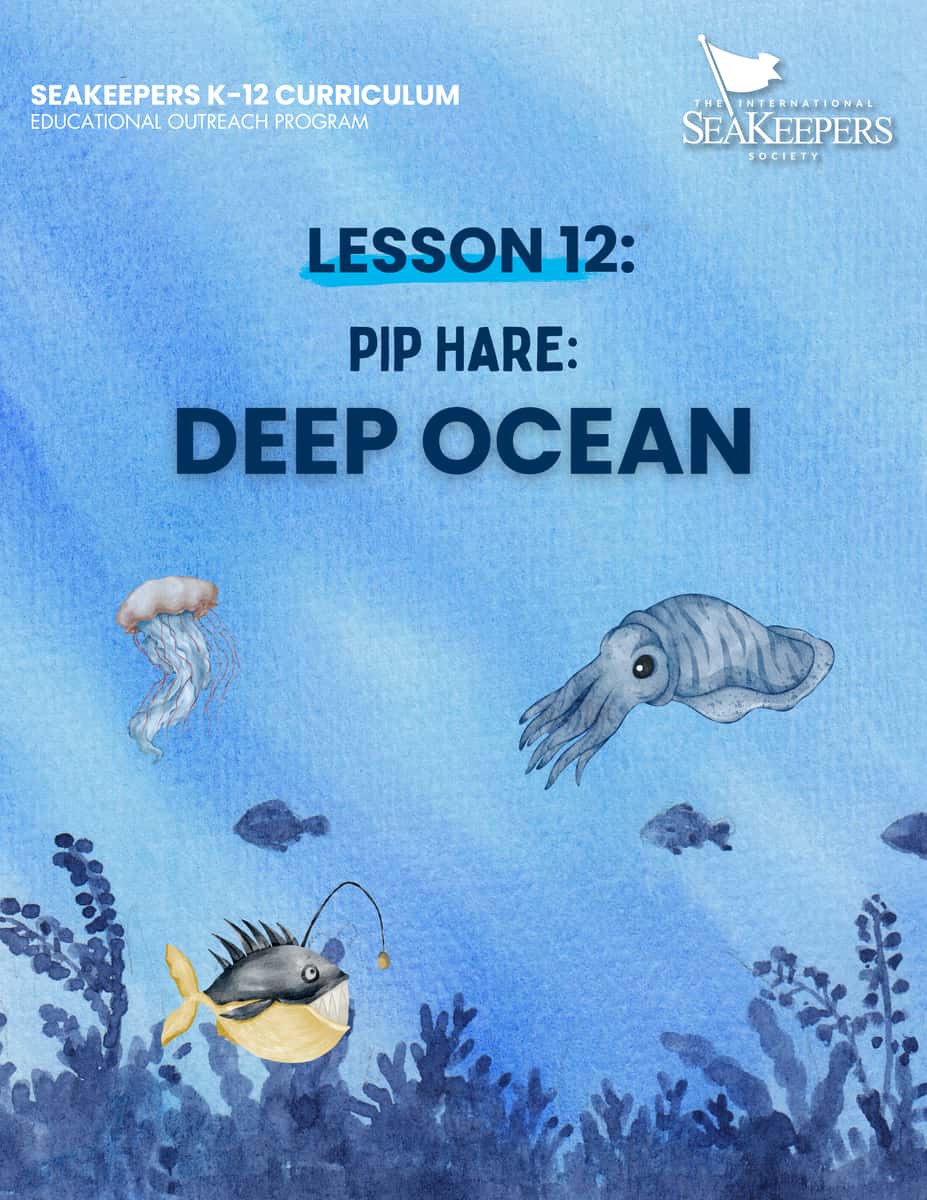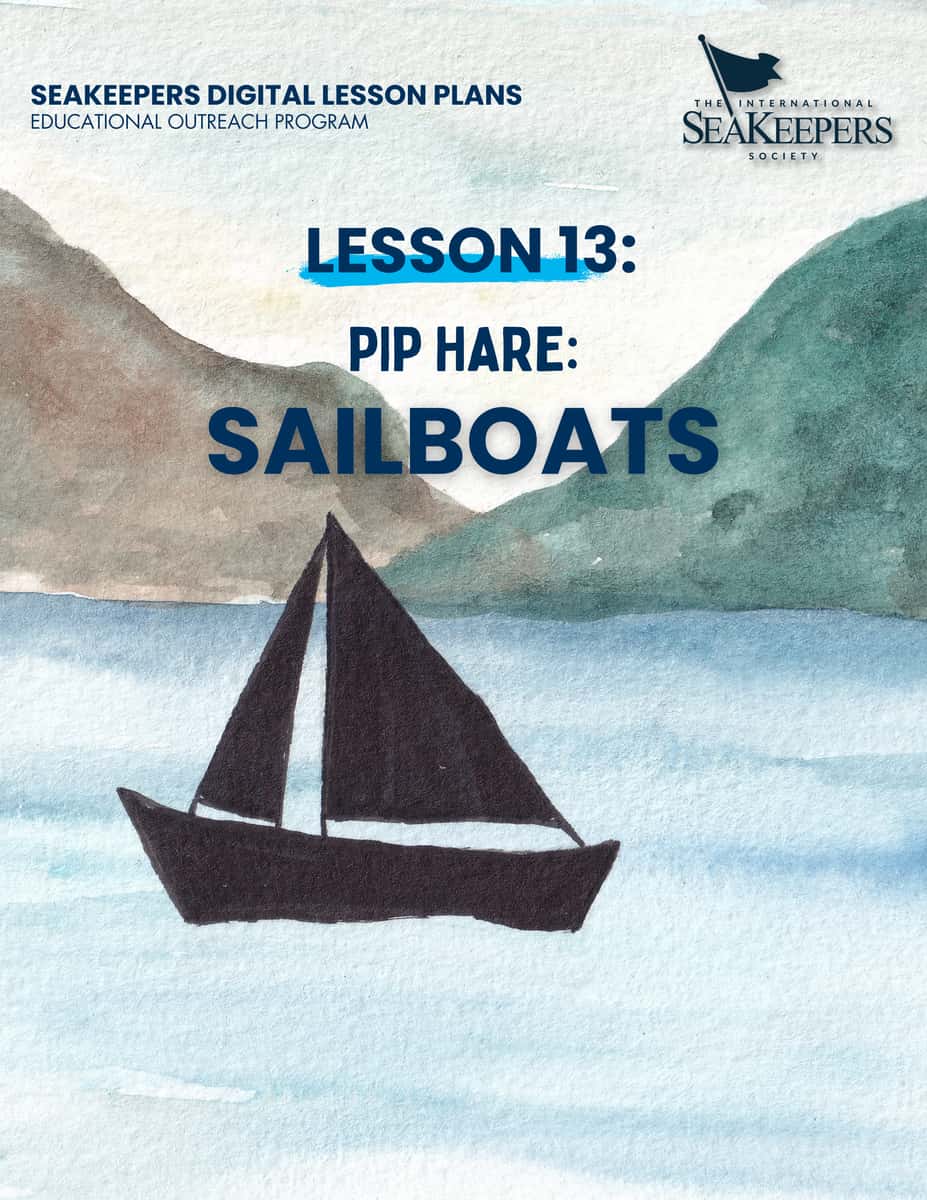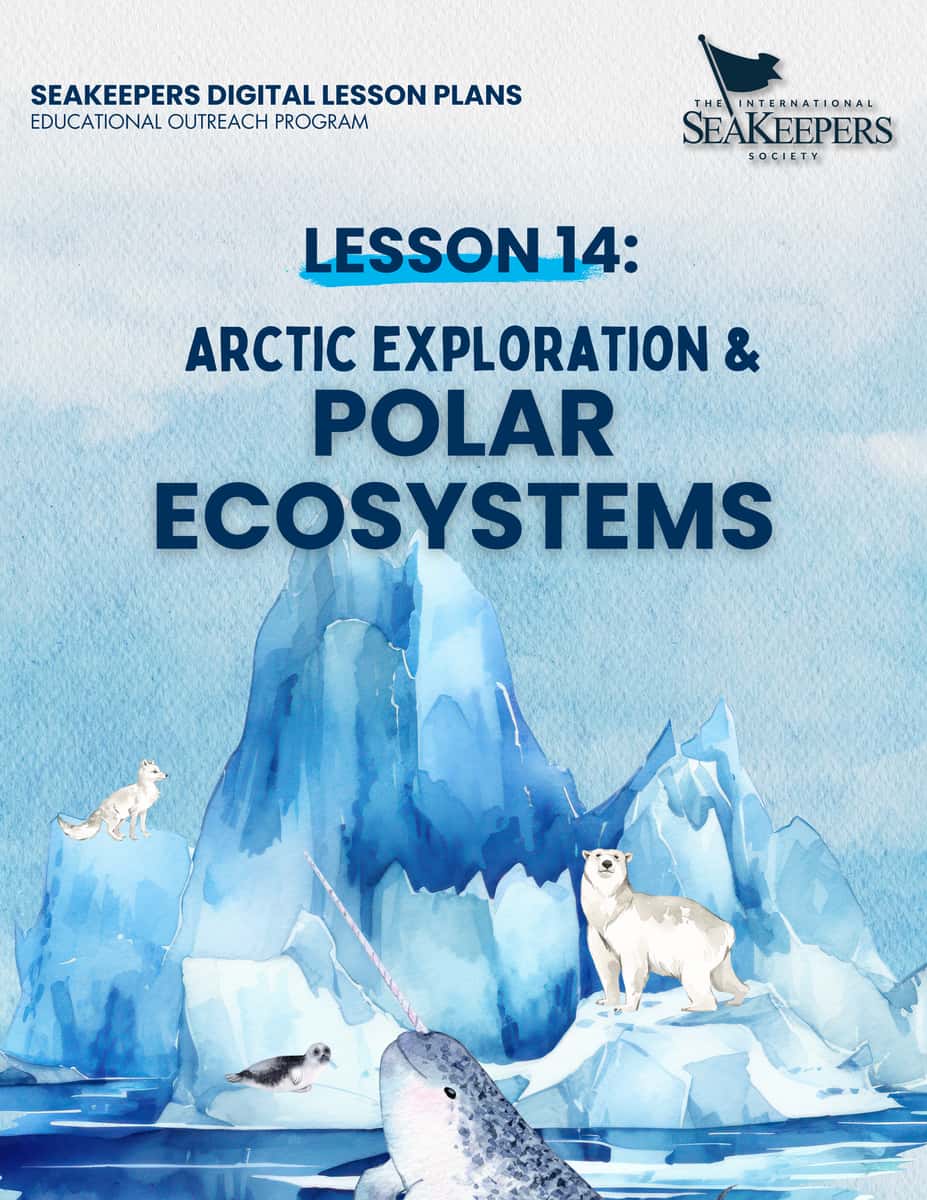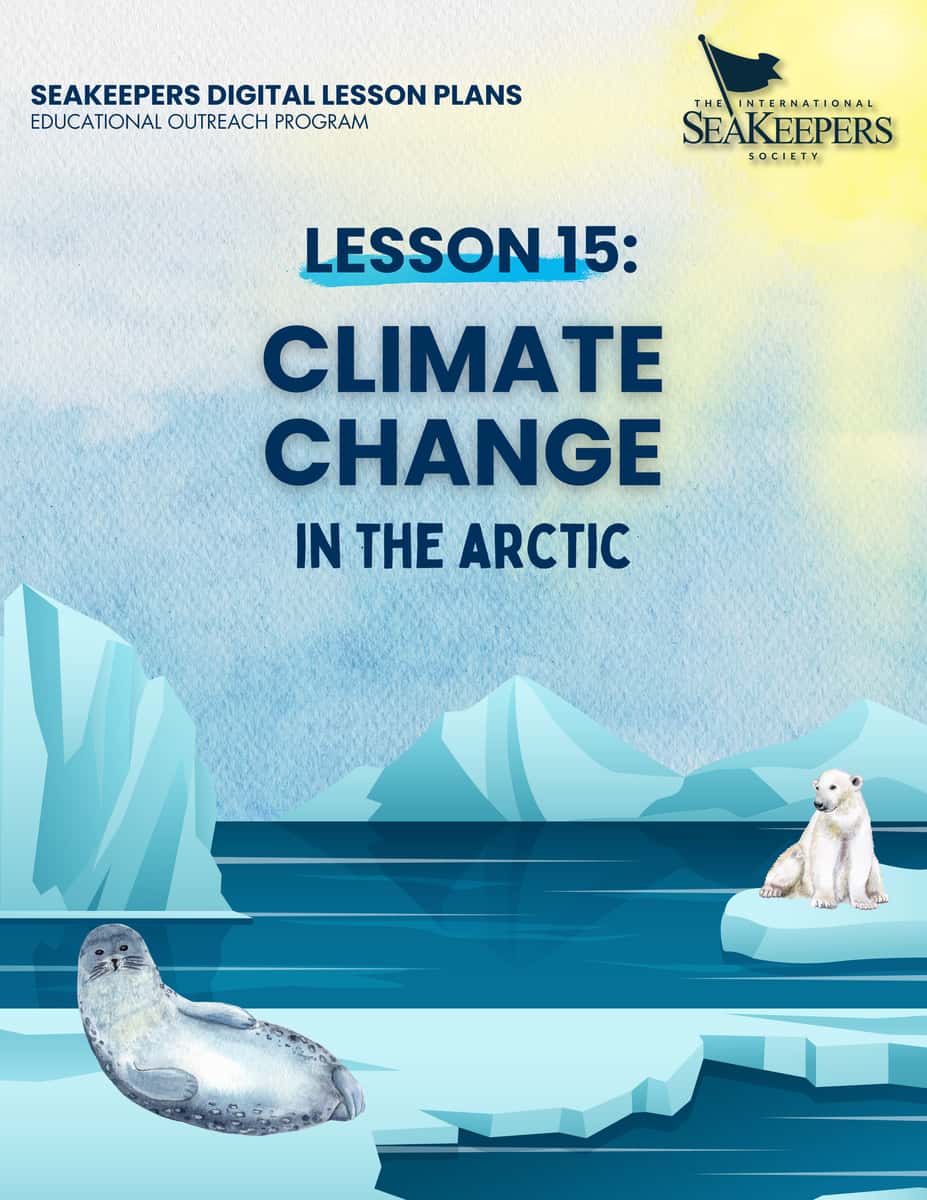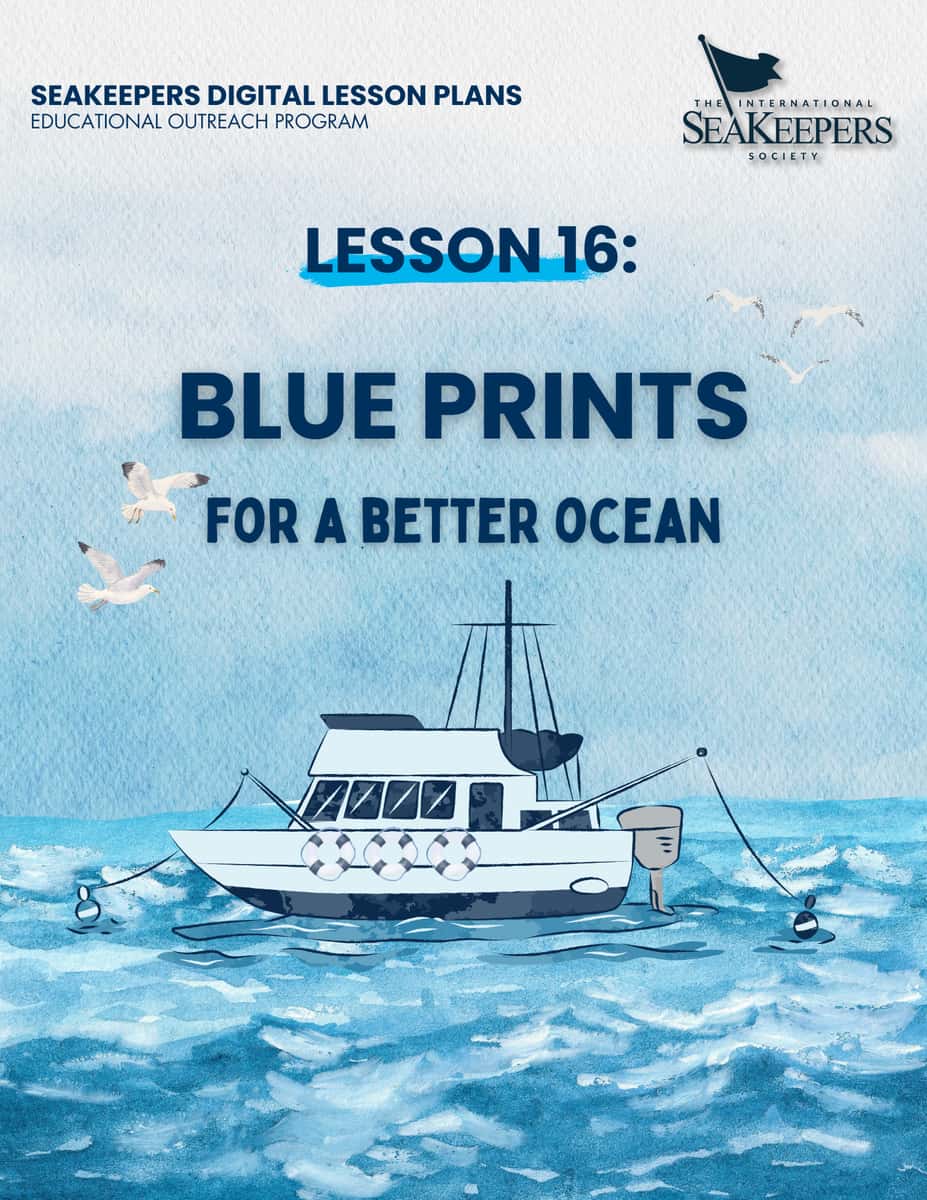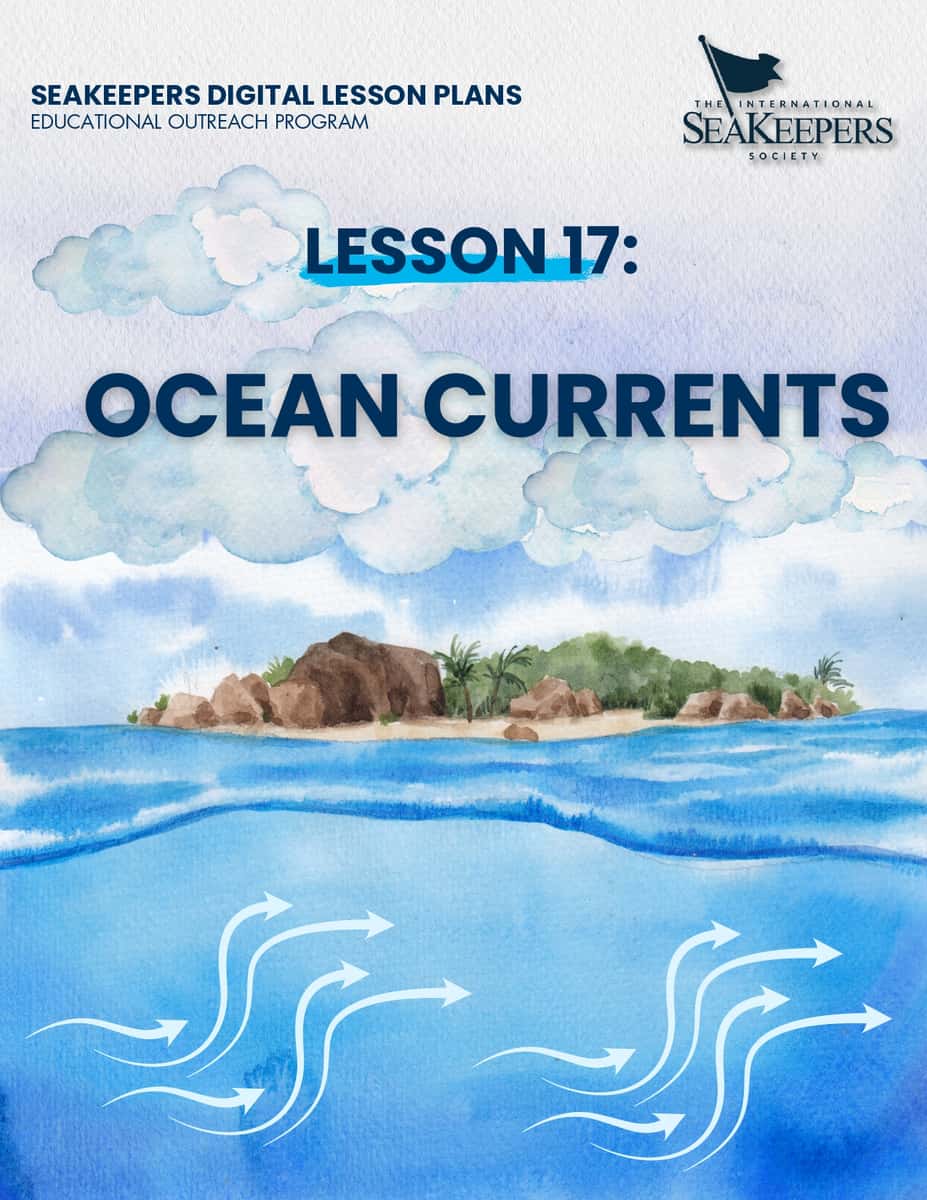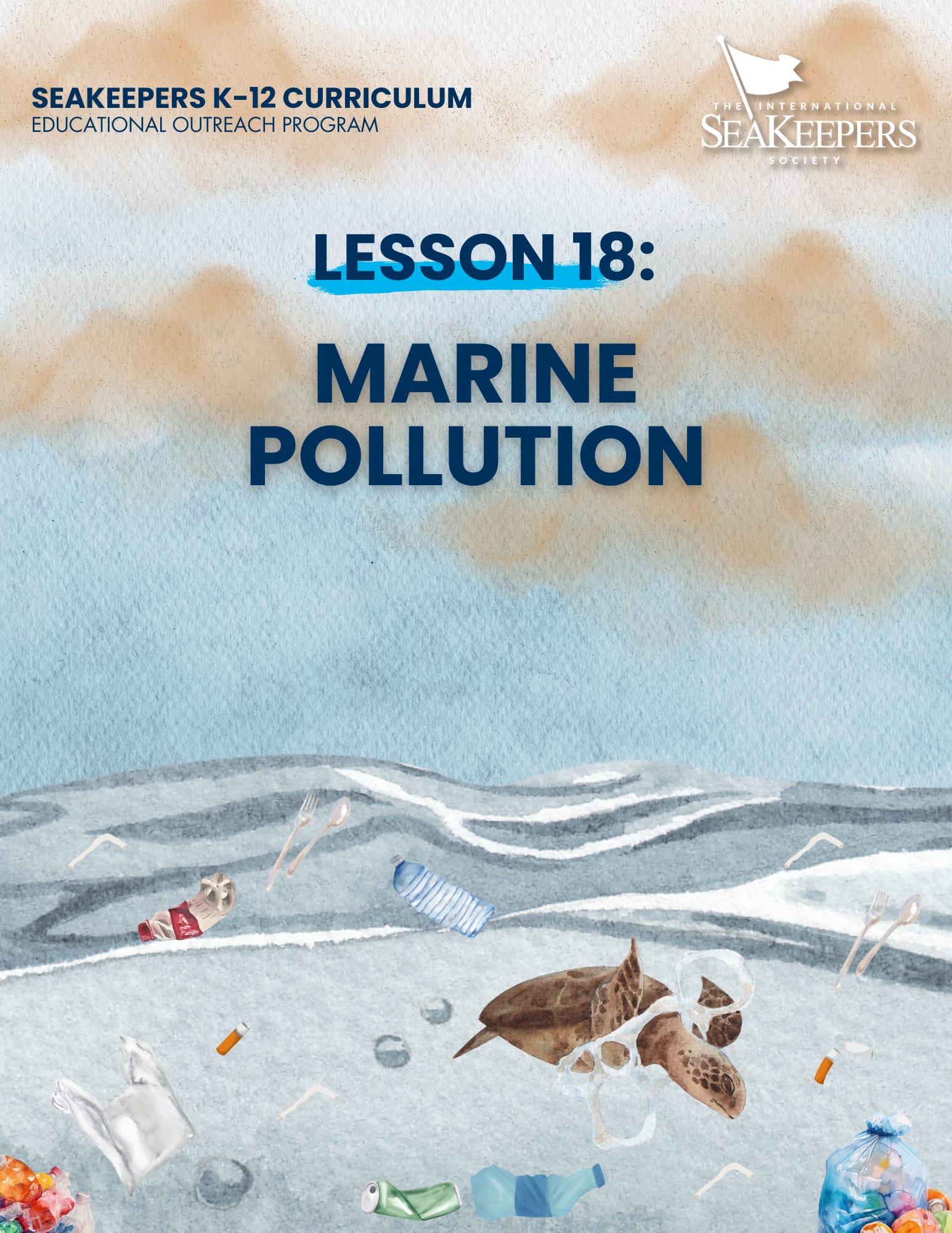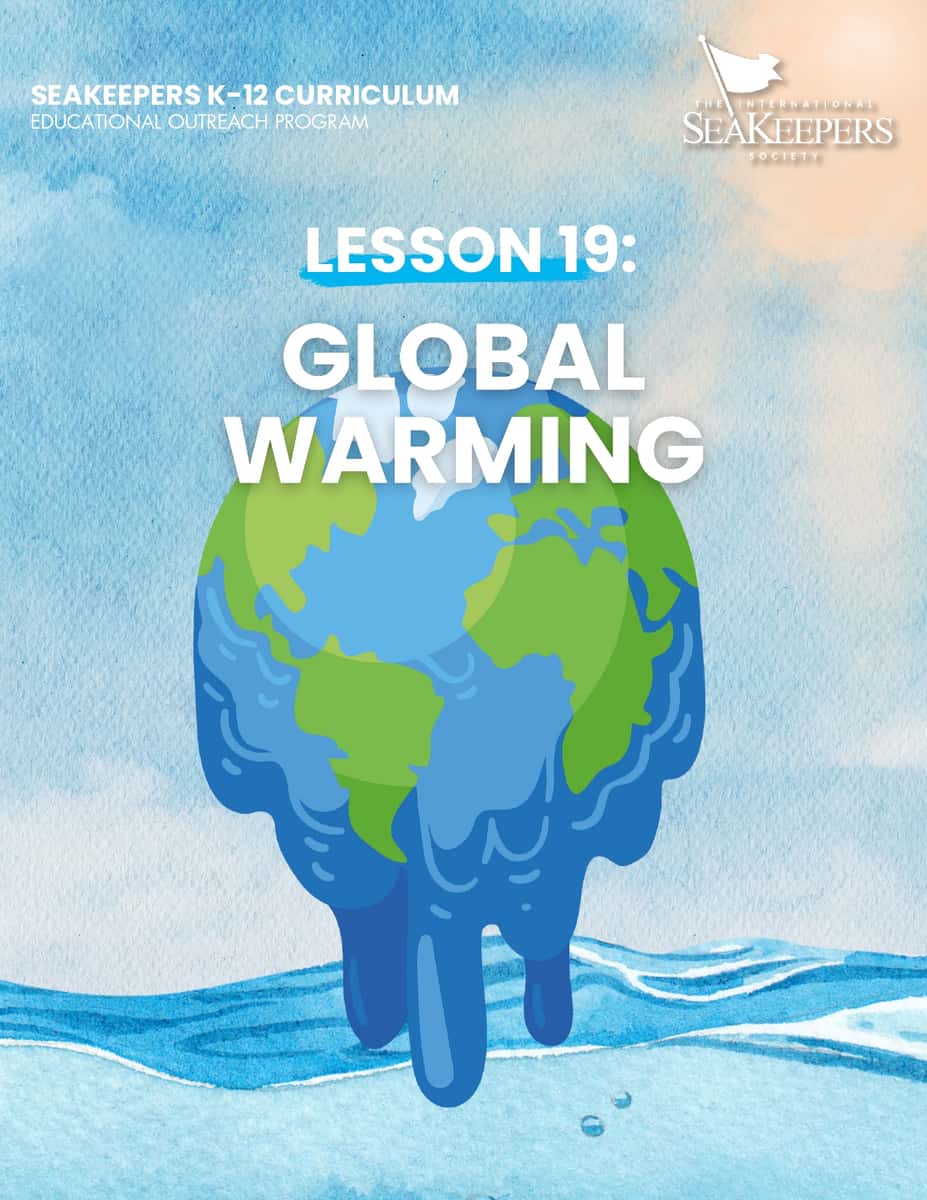
Sign up for seakeepers news & updates
Get the latest on our upcoming expeditions
and how you can join our effort.
Educational Outreach Program
Learn about why ocean conservation matters with hands-on
experiences and online resources.
Education for
the Next Generation
SeaKeepers is a nonprofit organization that offers free educational opportunities focused on ocean conservation and research. This program offers in-person and online activities for children of all ages, free of charge. In partnership with marine educators and other non-profits, we provide classrooms and small groups with local marine biology field trips and digital resources for classes that are unable to travel.
The program is also designed to provide training for teachers on marine science issues, allowing educators to take their personal experiences on the water back to their classrooms, and share valuable insights and lessons with their students.
Educational Outreach Activities
SeaKeepers educational outreach is focused on marine wildlife, plastic pollution, sustainability practices, water contamination and more. SeaKeepers staff work closely with the yacht owner or marine industry business to determine the appropriate type of participant group and outreach content, as necessary. Increasingly, an emphasis on green boating practices and highlighting emerging technologies that transition vessels from motor yachts to cleaner energy sources are included as part of the presentations.
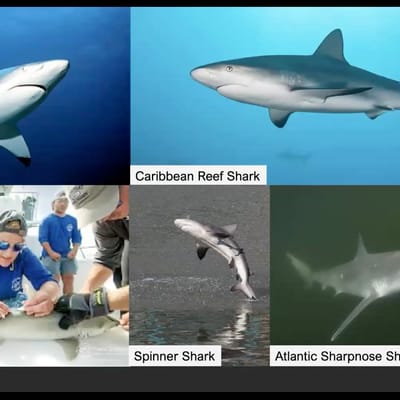
Junior SeaKeepers 24-25 Webinar 9: Emily Yeager - Shark Research and Conservation
Virtual
June 2, 2025
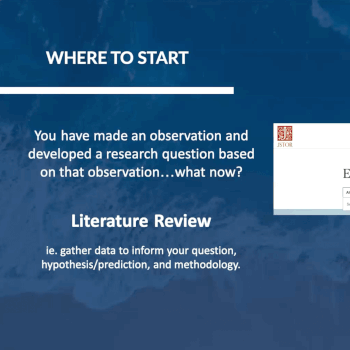
Junior SeaKeepers 23-24 Workshop2: Finding and Reading Scientific Literature
Virtual
October 11, 2023
Use the arrows to scroll through our latest programs
Educational Lesson Plans
These free resources include lesson plans, presentations, marine science kits, and activities. The goal is to provide a fun and interactive way of impacting the next generation in social responsibility and environmental conservation. If you are interested in working with SeaKeepers to create a marine conservation experience for your classrooms, please contact our programming team directly at [email protected].
Education Murals &
E-Workbooks
In partnership with the talented team at Canvas of the Wild, The International SeaKeepers Society is excited to present the “Wildscapes Unveiled” educational outreach project. Our goal is to invite South Florida students to explore three vital native environments; the Everglades, Mangrove Forests, and the Western Central Atlantic Pelagic. Learning about how these places support the health of Florida’s ecology and economy, as well as the threatened species that play a role in maintaining these systems.
Students will have the opportunity to learn about these habitats through three interactive displays with embedded touchpoints that link to species and habitat information on the Canvas of the Wild knowledge base. An e-workbook will also accompany the murals, which will also guide students and teachers through each featured habitat display and provide supplemental curriculum.
Floating Classrooms
Through the DISCOVERY Yacht Program, SeaKeepers staff works closely with yacht owners to increase programming for kids aboard vessels.
Our “Floating Classroom” program connects school groups with local marine educators who teach them about local waters and marine conservation. If you are a teacher or parent in South Florida looking for hands-on opportunities to get your kids excited about ocean conservation, or a marine educator looking for more opportunities to work with students, click below.
Junior SeaKeepers Program
This program offers students in grades 9-12 to get hands-on experience with oceanographic research while educating the local community about marine conservation issues. Students will learn about marine science topics from local experts while receiving training in conducting scientific research and science communication. The goal of this program is to give young ocean ambassadors the tools to not only understand the problems that face our oceans but to make a difference on a large scale. Apply today or learn more by clicking the button below.
Teacher Workshops
SeaKeepers and partners invite middle and highschool educators to apply for a two-day, three-night professional development opportunity in Miami, Florida. Through hands-on field experiences and research, teachers will use Biscayne Bay as a case study to explore anthropogenic impacts on different ecosystems found along coastal communities. Teachers will receive a Certificate of Completion for this professional development activity. Don’t miss out on this exciting professional development opportunity and apply today.
Biscayne Bay Coral Reef & Mangrove Ecosystem Identification Guides
SeaKeepers Educational Outreach team created these guides in partnership with the talented environmental artist Kelly Quinn of Canvas of the Wild with funding support from Open Water. They are the first and only ID guide specifically for Biscayne Bay that includes above and below-water native flora and fauna species. These unique outreach tools were created to increase community environmental awareness and promotion of marine conservation education in our beautiful Biscayne Bay ecosystems.
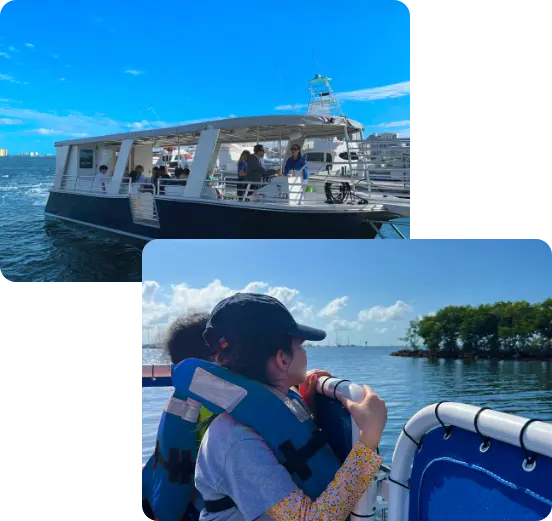
Vessel Support with SeaKeepers
Enhance students’ education with immersive boating experiences in South Florida.
Our vessel-based hands-on learning charter program offers engaging activities that ignite curiosity and foster a deep understanding of marine environments. Your vessel can be a floating classroom, fostering a passion for marine science and environmental conservation in students.
Vessel owners, captains and education supporters join SeaKeepers.
Our program welcomes vessels of all sizes, making it accessible to a wide range of participants. At SeaKeepers, we recognize the immense value that your contribution brings. By designating time on your boat as an in-kind donation, you are directly supporting our organization’s efforts in opportunities for marine education.
Complete our DISCOVERY Yacht Application to support our outreach program.
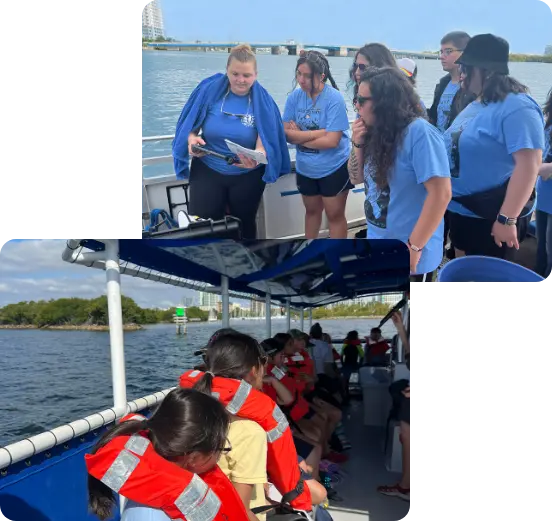
Education Request Form
Looking for a free educational experience for your students?
Our request form offers on-site conservation lessons, floating classrooms, virtual webinars with Seakeepers scientists, lesson plans for educators, and educational coastal/dive cleanups. Our in-person programming opportunities (classroom visits, educational cleanups, floating classrooms) are currently only offered in South Florida. This includes Miami-Dade and Broward counties. Topics covered include water quality, marine ecology, pollution, oceanography, and more! With options for in-person and virtual learning, your students will gain a deeper understanding of marine conservation.
Complete our request form today to start planning your next marine science adventure.
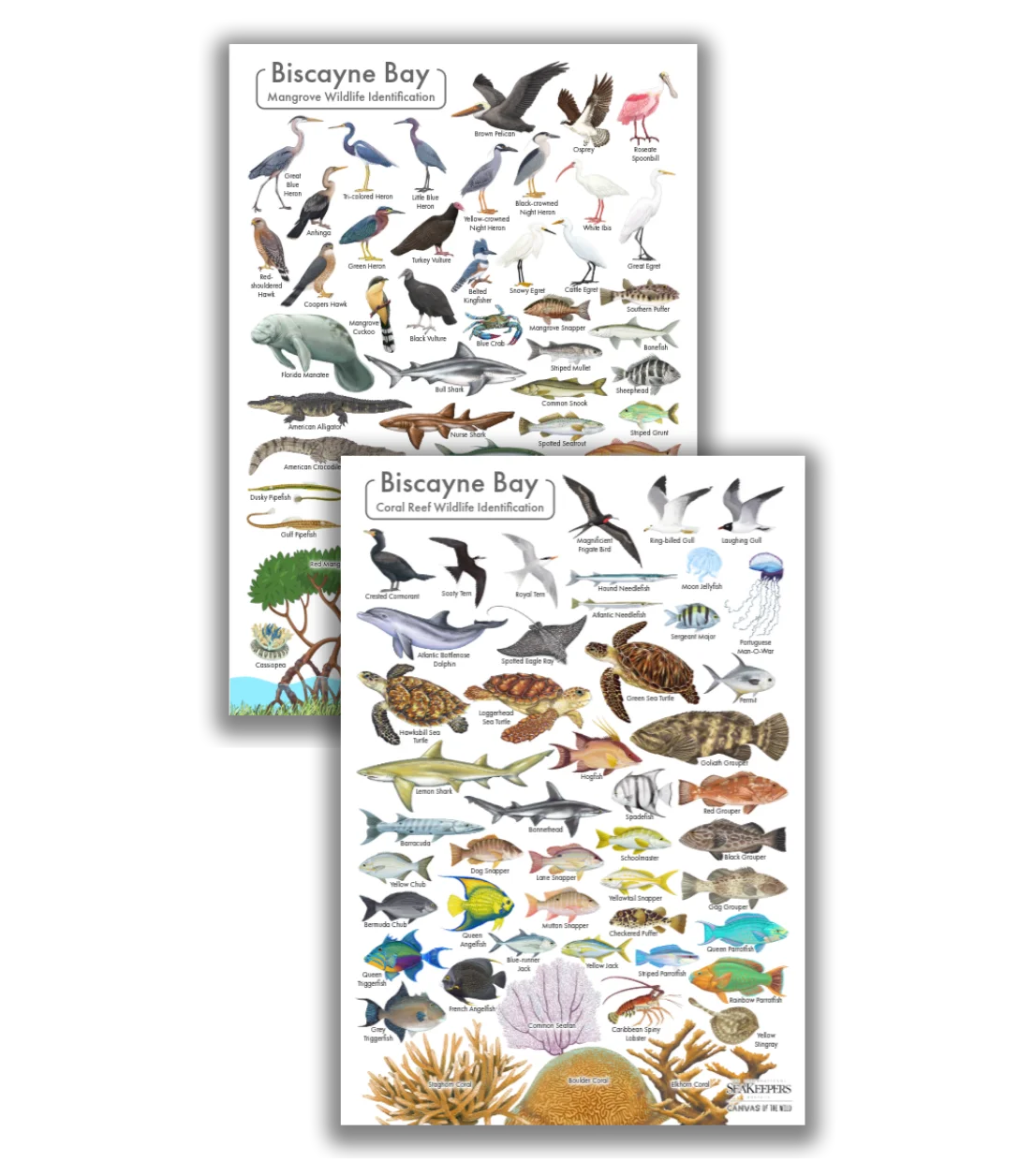
Biscayne Bay Coral Reef & Mangrove Ecosystem Identification Guides
The Biscayne Bay Coral Reef and Mangrove species identification guide was created by SeaKeepers Education and Outreach in partnership with the talented environmental artist Kelly Quinn of Canvas of the Wild with funding support from Open Water. They are the first and only ID guide specifically for Biscayne Bay that includes above and below-water native flora and fauna species. These unique outreach tools were created to increase community environmental awareness and promotion of marine conservation education in our beautiful Biscayne Bay ecosystems. The guides are 5.5” x 8”, double-sided, completely waterproof, and contain 100 highly detailed, true-color species images.
Testimonials
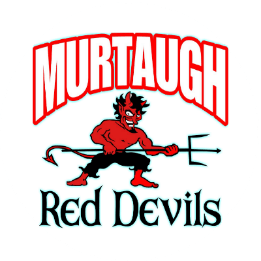
“The kids loved the activity, even though it was challenging. I love that it made them think and use math! It did help them gain a better understanding of the food web, and why it’s so important that we take care of our oceans (and other habitats).”
- Mrs. Spencer, Grades 4, Murtaugh Elementary
“Thank you for being a champion for the pelicans and other sick, injured, and orphaned native wildlife of Florida and for helping us spread the word about the importance of our work. We are deeply grateful for your support!”
- Christopher Boykin, Executive Director, Pelican Harbor Seabird Station
“I had the pleasure of joining The International SeaKeepers Society on an Education Workshop in Miami with teachers from Georgia. I learned a lot and had a great time. SeaKeepers works so hard to protect the environment and to educate the community. Toni and Lillian were absolute rockstars! We learned so much and had such a fabulous time. They are so passionate about what they do, and it is absolutely infectious.”
- Lillianna Mulvey, Grades 10th-12th, Environmental Science Educator, Jefferson High School
“I had the opportunity to attend a teacher professional development workshop hosted by SeaKeepers and the Georgia Aquarium. I learned so much about our marine ecosystems and the impacts humans have on them. I gained valuable knowledge and resources that I can use to develop my lesson plans and make them more relevant for my students. I enjoyed every moment - from being on a floating classroom, doing coastal clean-up, snorkeling on a reef and more. Thank you to Toni and Lilian, our SeaKeepers educational leaders for the experience and training!”
- Moriah Sherman, Grades 9th and 10th, Biology Educator, East Jackson Comprehensive High School
“Attended a floating sea lab class for youth, they provided knowledge for my children that was relatable and showed them hands on how they test the quality of the water. The education they are providing is showing our youth why and what needs to be done to protect our natural water sources around us. They encouraged them to all make a difference! Thank you for a wonderful experience.”
- Celia Glasser, Parent of Participating Student
“[The Teacher Workshop] was an amazing, well-organized PD. I learned many new things and had fun doing it. Isn't that what we want for our students?! Toni's passion and excitement for marine conservation is contagious. It was real!! I could see it in every activity we did and her follow up lessons!! This cohort was amazing!!”
- Deborah Cox, 7th Grade, Life Science & Math Educator, Gardner Newman Middle School
“Blessed and grateful for this [Teacher] Workshop. A life memory I will cherish for all the years to come! Reconnecting our cohort with SK/GA on a semiannual basis may be the most significant next steps for making this workshop a true catalyst for ensuring we collaborate effectively and resourcefully towards inspiring and equipping our 11-17 year old students for the challenges our planet faces - environmental/ecological/anthropogenic extinction/biodiversity ~ into the foreseeable future.”
- Michael Scrapchansky, Grades 9th-12th, Environmental, Physical, Forensic, & Biological Science Educator, Peach County High School
“I am so grateful to have been part of this [Teacher Workshop] PD. Meeting like-minded people has inspired me and has me excited for the next school year…I can’t not express how wonderful and informative this PD was for me. I walked away with all of my goals for this PD exceeded. Thank you so much Bailey, Toni, Lillian, and the whole SeaKeepers and Georgia Aquarium team! They were very approachable, helpful, kind, and made this PD amazing.”
- Melissa Rowe, Grades 10th-12th, Chemistry and Physical Science Educator, Chattooga High School
“This was an AMAZING experience. Toni answered all our questions and more. All the presenters, photographers, videographers, etc. were exceptional. Bailey Dawson from GA aquarium was an excellent resource for finding resources and his behind-the-scenes tour at the aquarium was very insightful. Everyone's understanding of what teachers are dealing with in the classroom was helpful to making this not only an educational experience, but also a fun experience. I am grateful for the other teachers who attended as they will be excellent resources in the future as well. THANK YOU FOR SELECTING ME!”
- Angela Mentzel, Grades 9th-12th, Environmental Science & Biology Educator, Cherokee High School
“This [Teacher Workshop] trip exceeded my expectations and will likely be remembered as the best thing I got to do as a teacher. I learned things that I will include in this upcoming year’s lessons, I made great connections with other Georgia educators, and I have more awareness about pollution that is destroying our waterways. I have already recommended the workshop to other teachers in Georgia.”
- Megan Netherland, 9th Grade, Biology Educator, Veterans High School
Education Partners




